TWENTIETH CENTURY
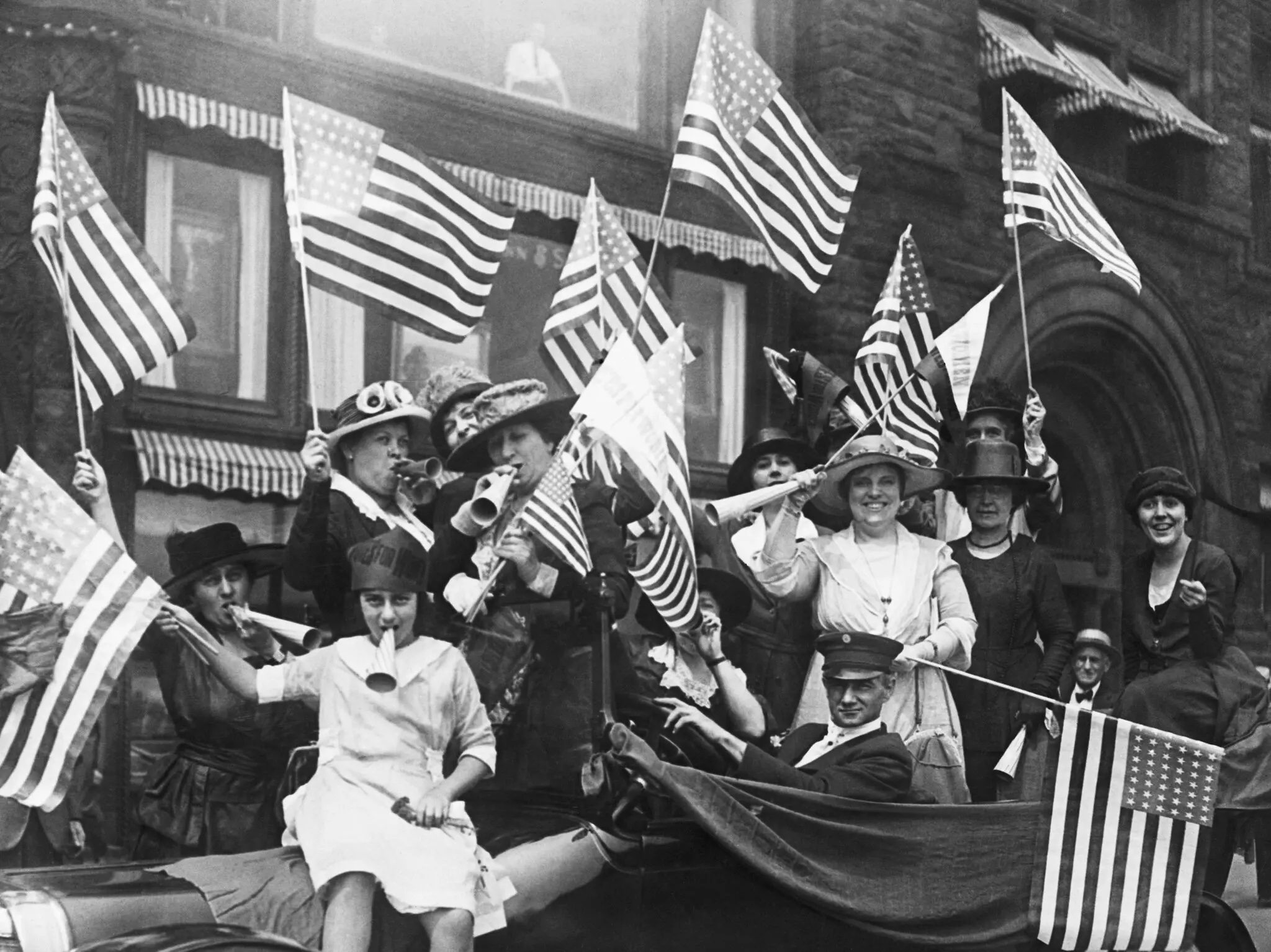
By this year, every state had passed legislation granting married women the right to keep their own wages and to own property in their name.
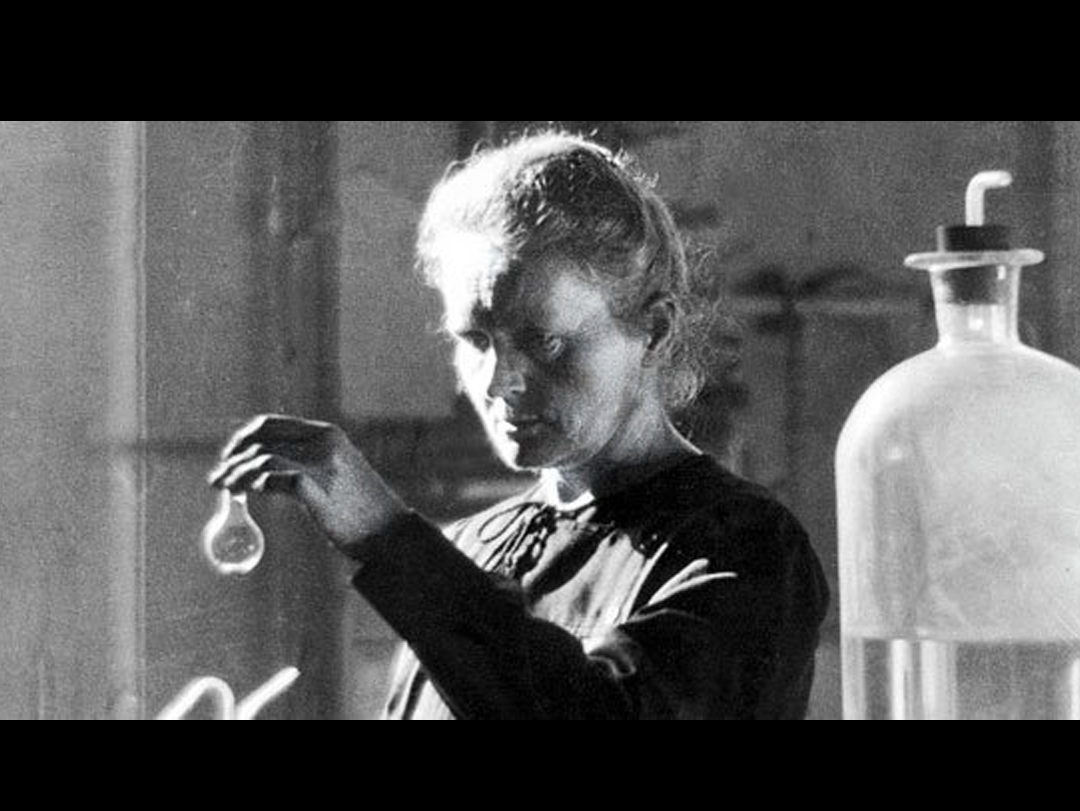
Marie Curie becomes the first woman to receive the Nobel Prize for her pioneering work in the field of radioactivity. She also discovered the chemical element polonium, and the element radium with her husband. She received her second Nobel Prize in 1911. Her work was integral to the development of x-ray machines.
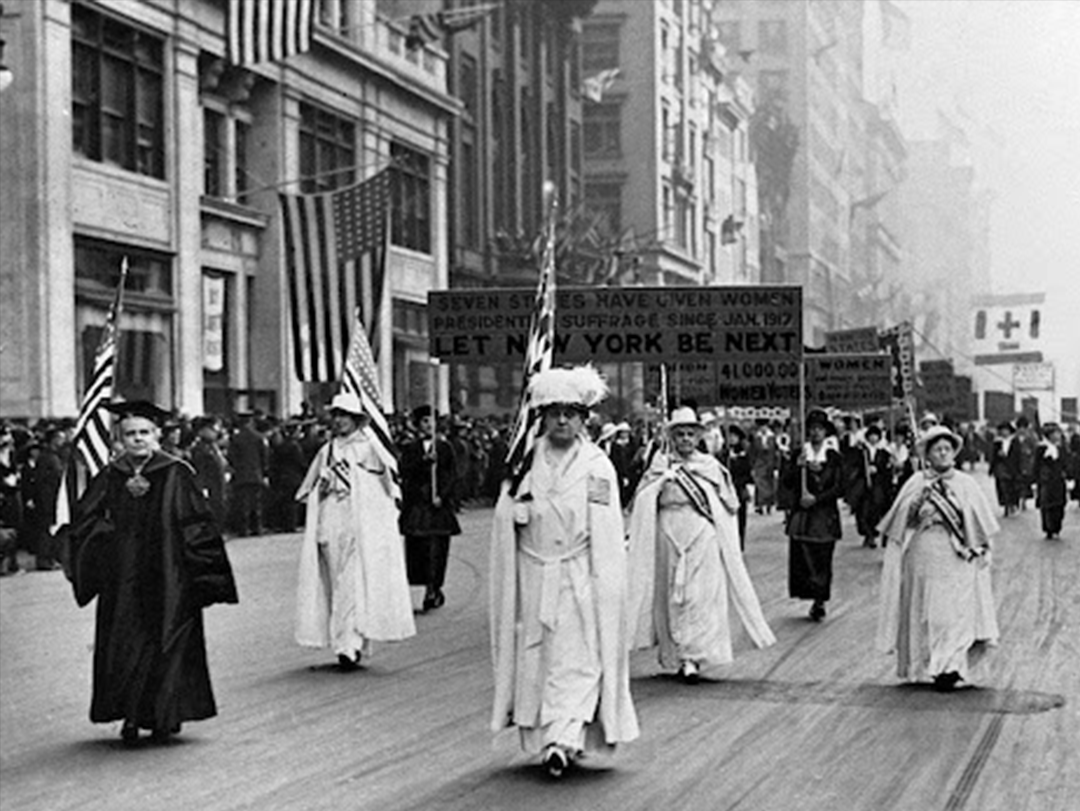
The First Women’s Parade takes place in New York City, becoming the largest woman suffrage demonstration with 10,000 participants.
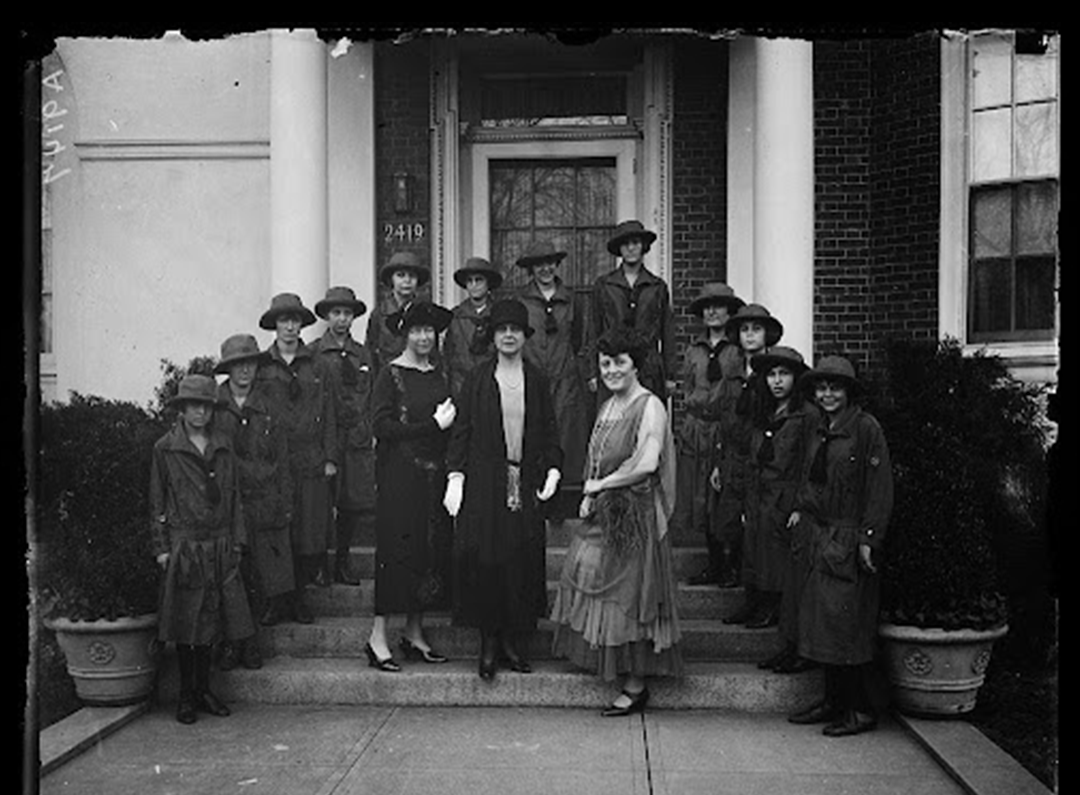
Founded by Juliette Gordon Low, Girl Scouts of America is formed with the aim of promoting social welfare by encouraging community service and outdoor activities among girls. Some notable Girl Scouts include: Michelle Obama, Gloria Steinem, Hillary Rodham Clinton, and Sandra Day O’Connor.
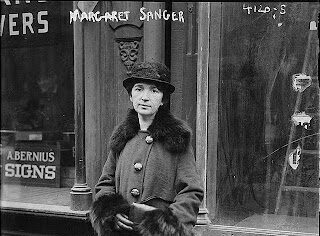
Margaret Sanger opens the first birth control clinic in the United States, located in Brooklyn, New York. In the early 1900s, birth control and abortions were forbidden by a federal law, known as the Comstock Act. The clinic was deemed illegal, raided and legally threatened several times, eventually leading to the closing of the clinic. Sanger would go on to found the American Birth Control League in 1921—which went on to become Planned Parenthood. Sanger is found guilty of violating the state penal code in 1917 by operating this clinic.
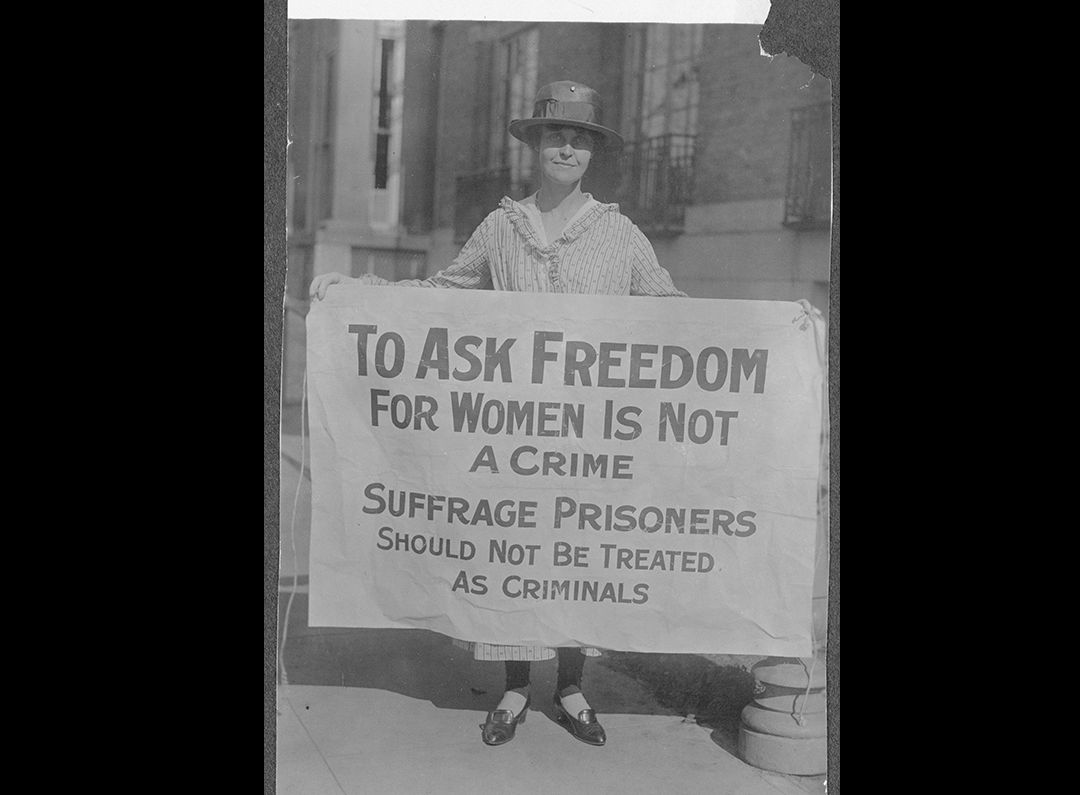
The Night of Terror takes place in Washington, D.C. Women were regularly jailed for protesting and taking part in demonstrations fighting for the right to vote, but on this night, 33 returning protesters were beaten by guards and put into cells at the Occoquan Workhouse in Virginia. Weeks later, the events that took place that night were exposed to the world, by a court ordered hearing. The judge agreed that the women were terrorized for exercising their constitutional right to protest. Though it would still take three years to win the right to vote, the Night of Terror gave a new definition to women’s patriotism.
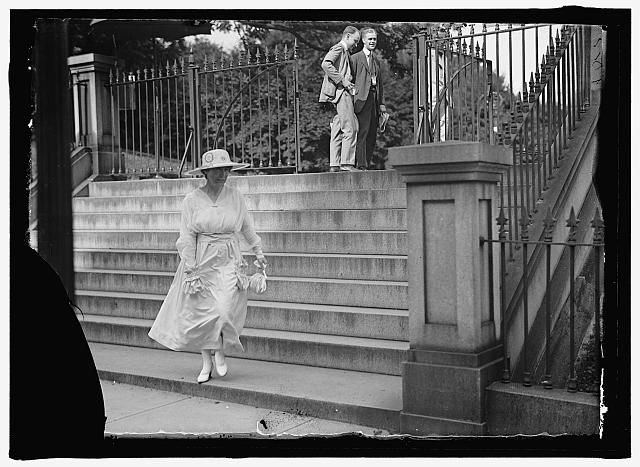
Jeannette Rankin of Montana is sworn in as the first woman elected to Congress as a member of the House of Representatives. Rankin was an activist with the National Woman Suffrage Association. Throughout her term, she proposed legislation to aid women and children, and advocated for the passage of a federal right for women to vote. She remained a vocal spokesperson for pacifism and social reform, going on to organize the Jeannette Rankin Brigade in 1967 to stage numerous notable protests against the Vietnam War.
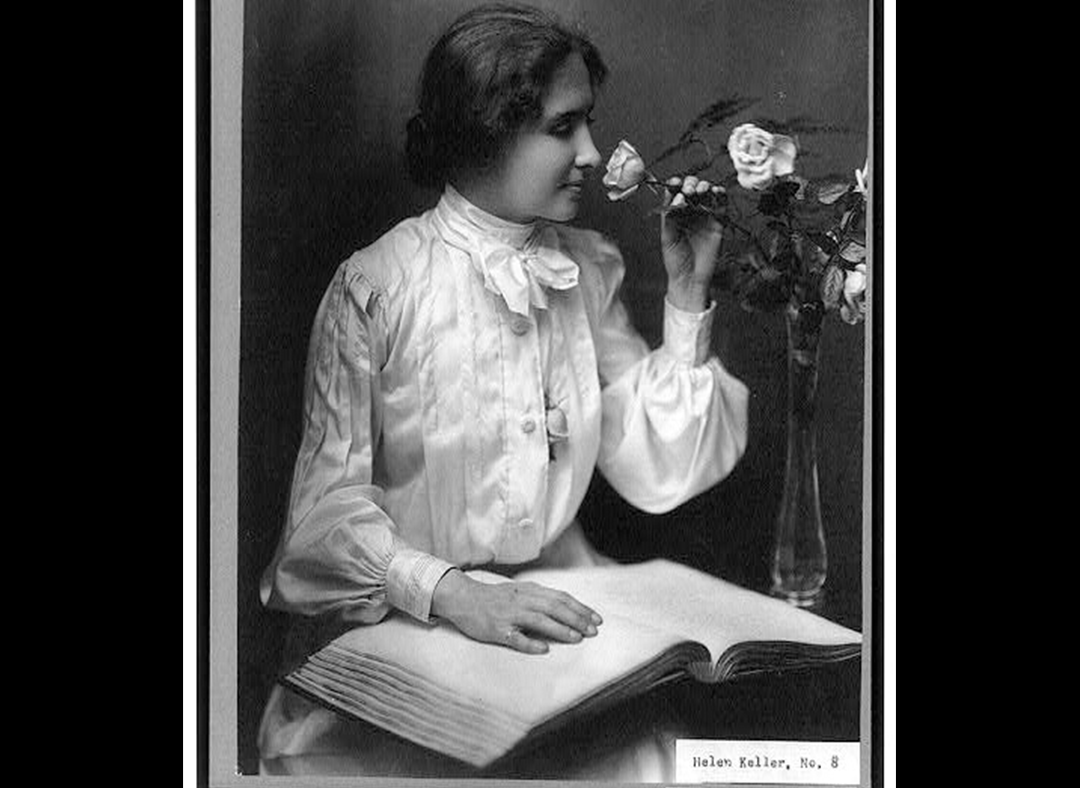
An advocate and educator for the blind and deaf, and a leading activist in the rights of women and African American workers, Helen Keller becomes a co-founder of the American Civil Liberties Union (ACLU) - an organization that “defends individual freedoms including speech and religion, a woman’s right to choose, the right to due process, [and] citizens’ rights to privacy…” Overcoming adversities as a blind and deaf woman herself, Keller went on to become one of the leading humanitarians of the 20th century, receiving various honors such as the Distinguished Service Medal, the Presidential Medal of Freedom and election to the Women’s Hall of Fame - among many others.
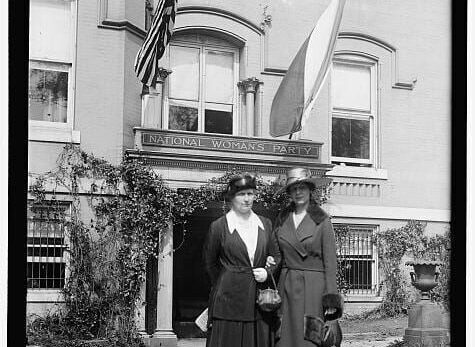
After lobbying by the National Women’s Party, Congress passes the Cable Act, also known as the “Married Women's Independent Citizenship Act” preventing American women from losing their citizenship after marrying aliens.
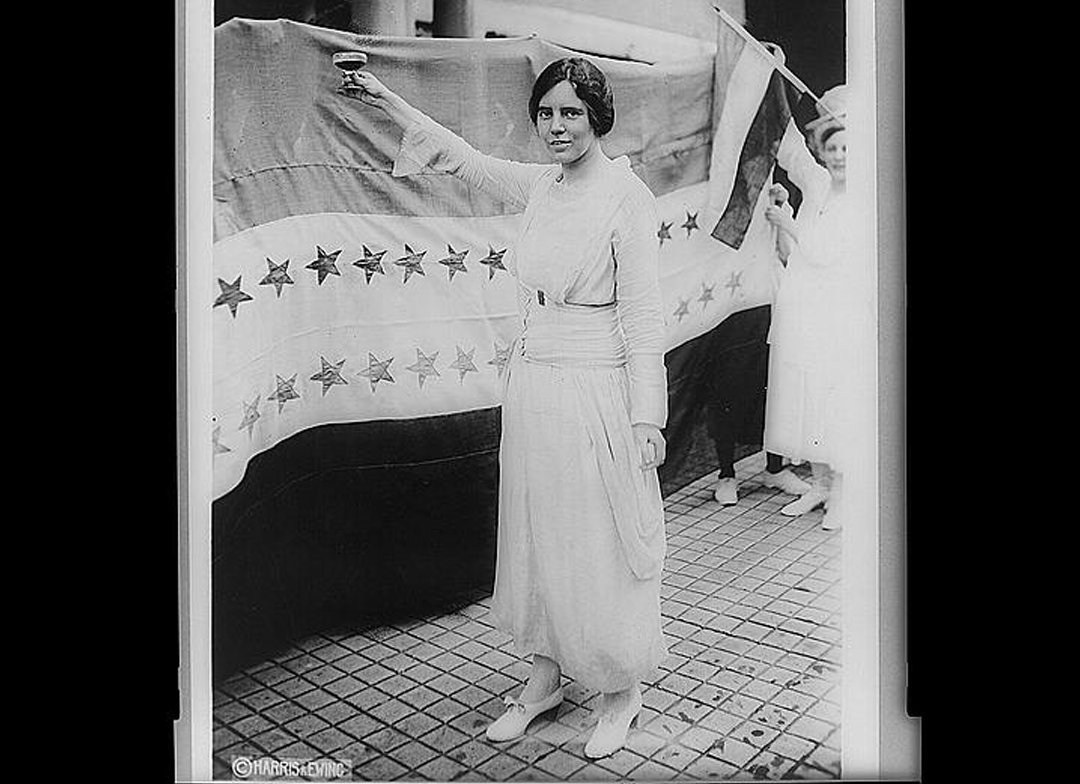
Suffragist Alice Paul introduces the Equal Rights Amendment (ERA) in Seneca Falls. Paul argues that the ERA would guarantee the equal protection of constitutional rights to all, without regard to sex.

Amelia Earhart becomes the first female aviator to fly solo across the Atlantic, and the first woman to receive the Distinguished Flying Cross.
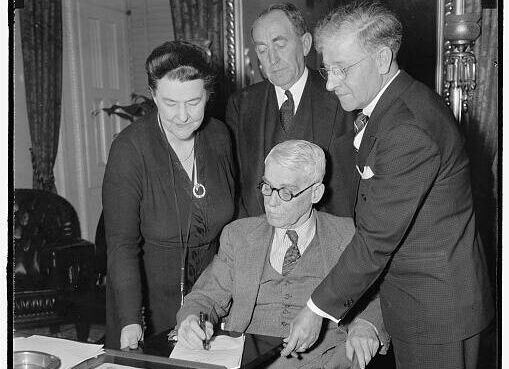
The federal minimum wage was born with the Fair Labor Standards Act, wiping out common pay differences between men and women for hourly jobs.
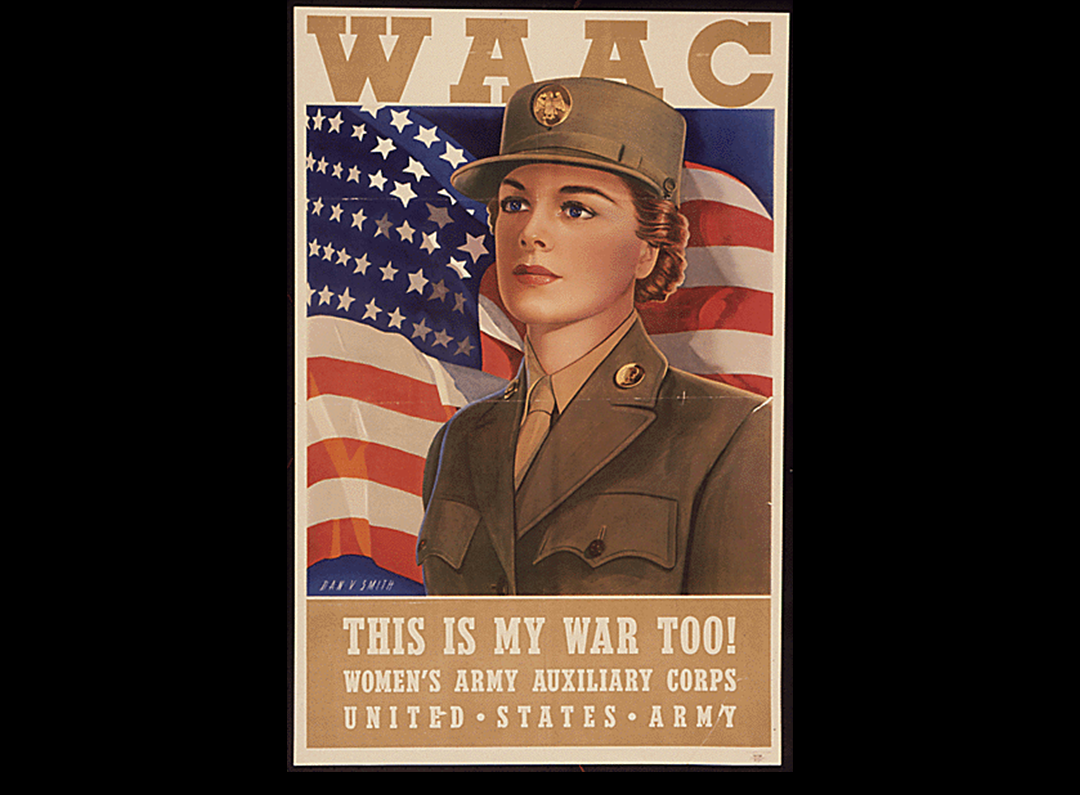
The U.S. Army established the Women’s Army Auxiliary Corp and recruited over 150,000 women during World War II to work as radio operators, mechanics and laboratory technicians. Museum
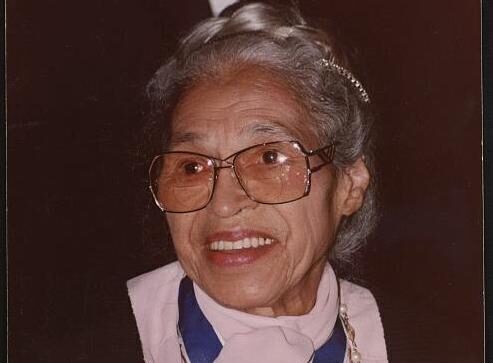
Rosa Parks bravely refuses to give up her seat on a bus to a White man in Montgomery, Alabama. This move helps initiate the civil rights movement. Segregation on city bus systems was ruled illegal by the Supreme Court in 1956. Before her role in the Montgomery Bus Boycotts, Parks was already an activist, working on applications of criminal justice in Alabama communities. She launched the Committee for Equal Justice for the Rights of Mrs. Recy Taylor, in pursuit of justice for a woman who had been attacked and raped by a gang of White men.

The Food and Drug Administration approves the first commercially-produced birth control pill in the world. This revolutionizes women’s lives by giving them control over when and if they have children.
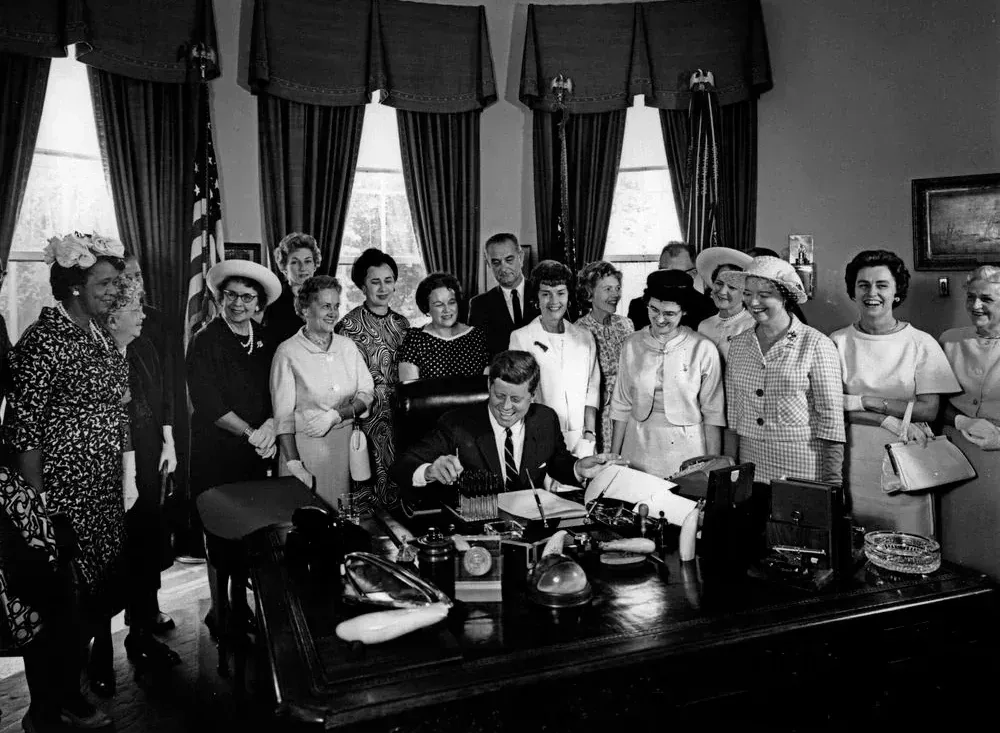
President John F. Kennedy signed the Equal Pay Act into law, prohibiting sex-based wage and benefits discrimination between men and women performing the same job in the same workplace. This bill was one of the first in American history aimed at eliminating wage discrimination between men and women.
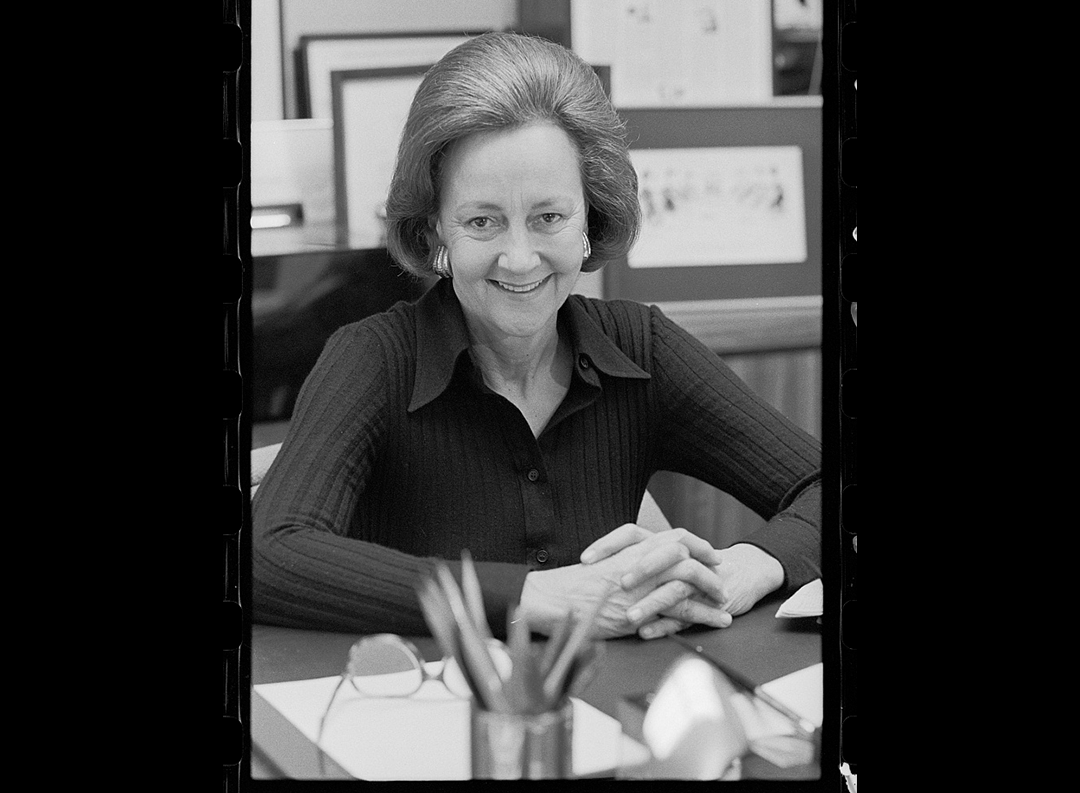
Katharine Graham becomes the first female CEO of a Fortune 500 company. One of the first female publishers in America, Graham turned the The Washington Post Company into a billion dollar business and exposed two of the nation’s greatest stories: the Pentagon Papers and the Watergate story. In 1998, Graham won a Pulitzer Prize for her autobiography, Personal History.
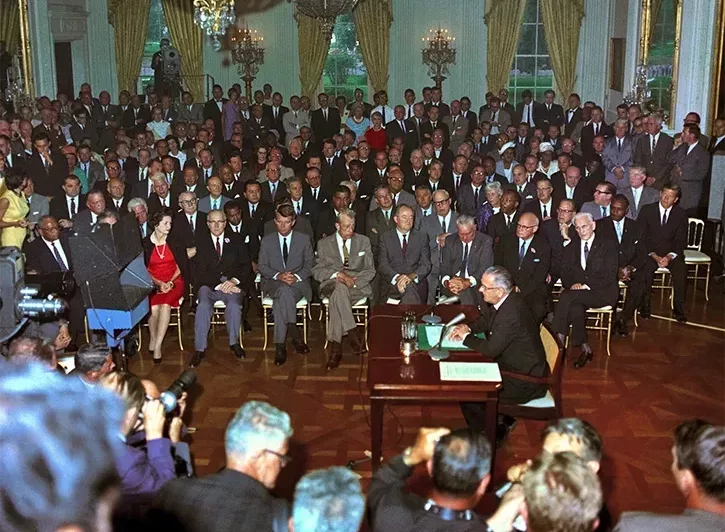
President Lyndon B. Johnson signs the Civil Rights Act into law, ending segregation in public places and banning employment discrimination on the basis of race, color, religion, sex or national origin under Title VII. The Act established the Equal Employment Opportunity Commission (EEOC) to oversee the enforcement of laws against workplace discrimination.
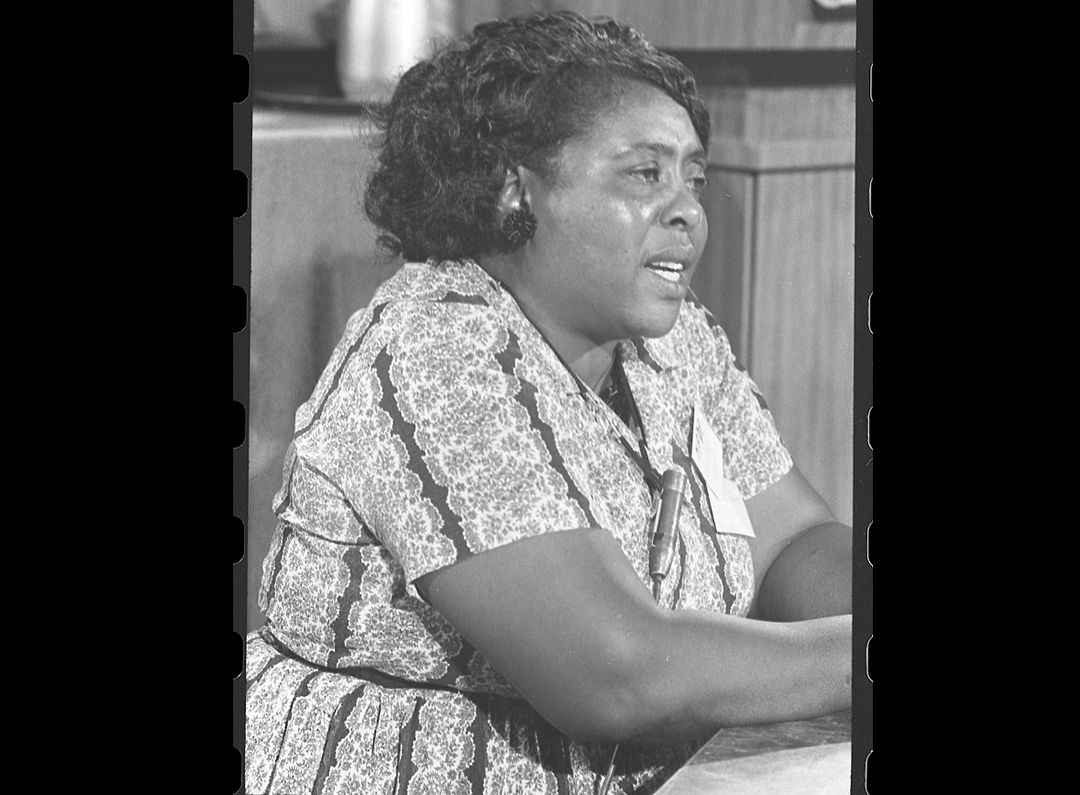
Dedicating her life to the fight for civil rights, Fannie Lou Hamer becomes one of the founding members of the Mississippi Freedom Democratic Party, challenging local efforts to prevent Black citizens from voting. Hamer also organized the Freedom Summer African American voter registration drive of 1964, alongside the Student Nonviolent Coordinating Committee (SNCC) - an organization formed to provide Black students with a voice during the civil rights movement.
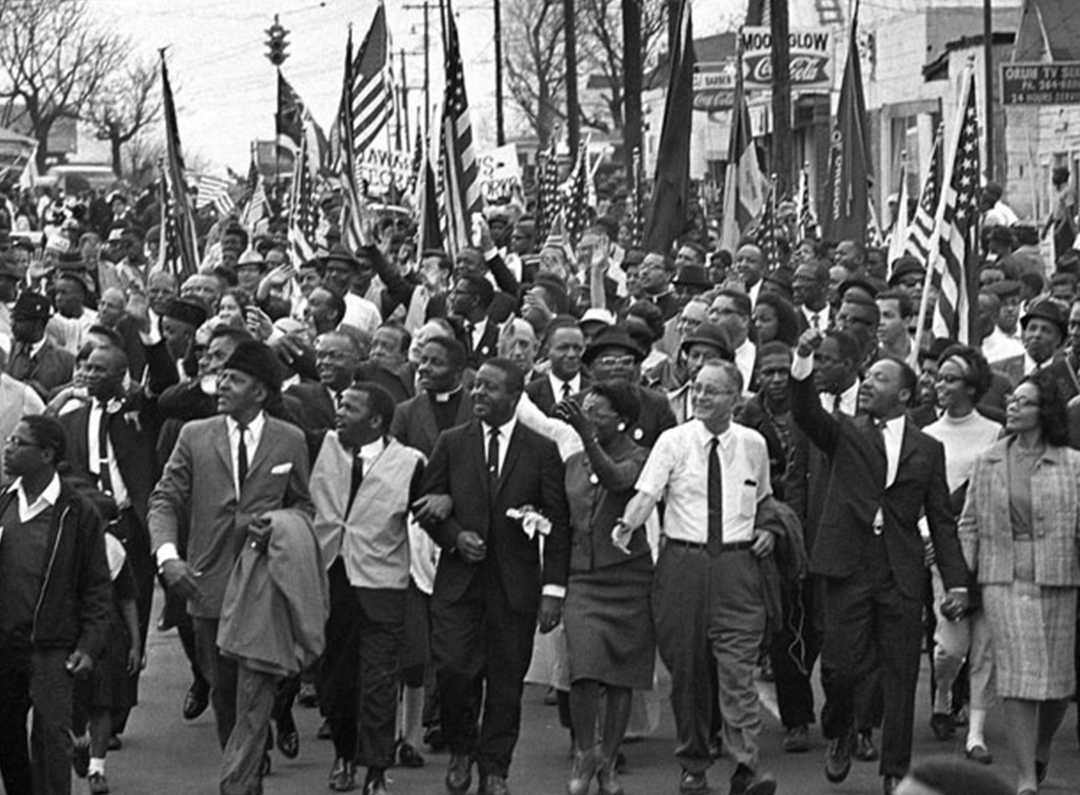
The Voting Rights Act is passed, finally giving black people the opportunity to vote. This Act is the culmination of more than a century of work conducted by Black women to make voting easier and more equitable after states passed countless racist and discriminatory legislation to prevent black people from voting.
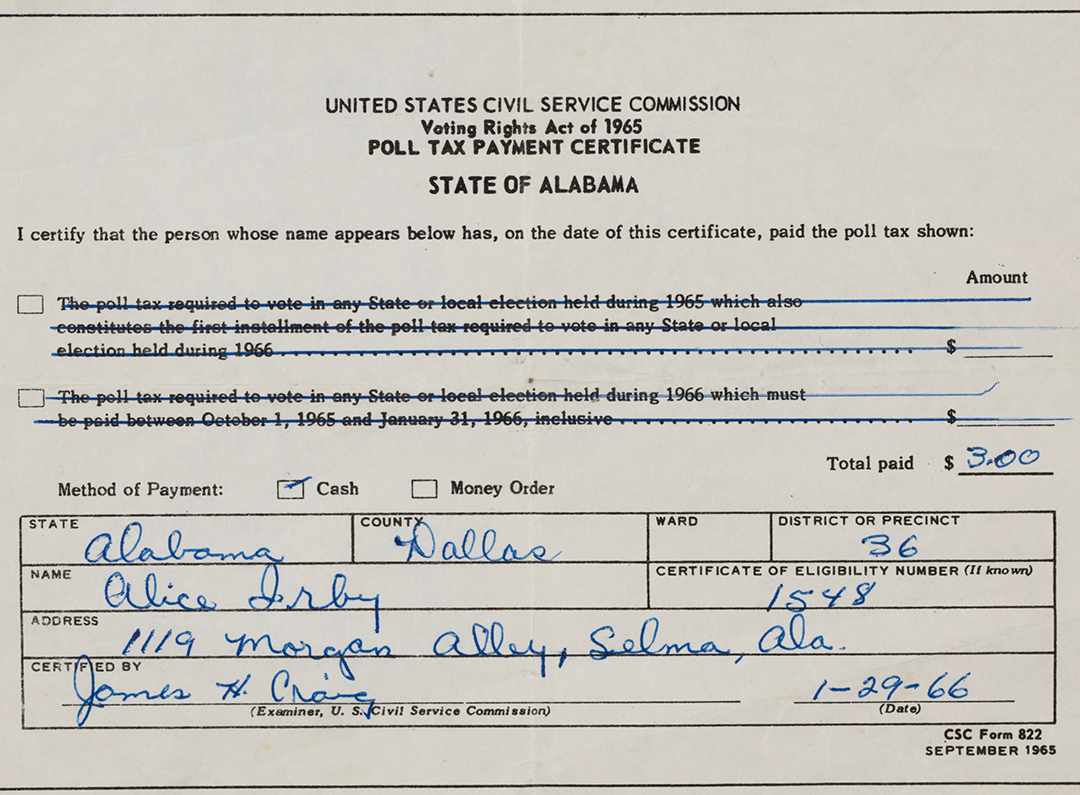
Despite the 19th Amendment, women of color were prevented from voting due to gerrymandering, Jim Crow laws, literacy tests, and poll taxes. Continued suppression by states, males refusing to relinquish political power, and the failure by both parties to acknowledge women’s issues caused women to embrace non-partisanship platforms. It was not until the 1980s that women became a significant voting bloc.
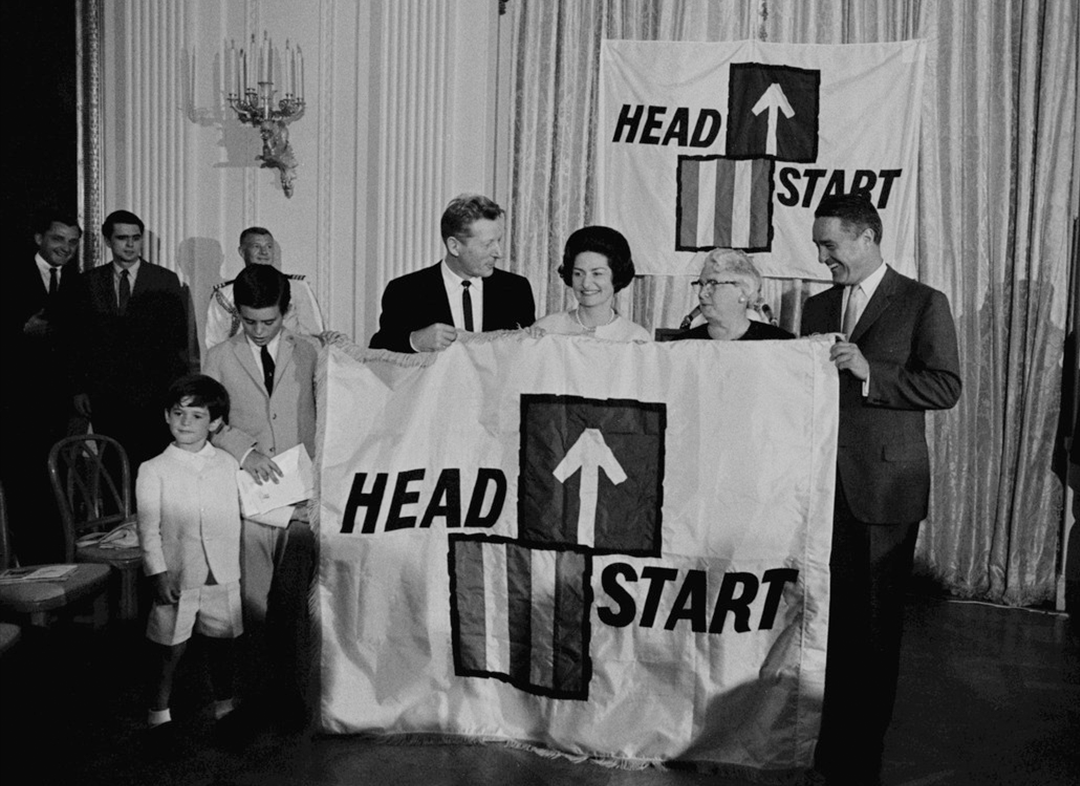
As part of his “War on Poverty” agenda, President Johnson announces the launch of Project Head Start. This program is designed to “break the cycle of poverty and meet [the] emotional, social, health, nutritional, and educational needs” of low income families. By 1995, the program expanded and awarded grants to serve low-income pregnant women and children ages birth to 3 under Early Head Start. To date, Head Start has served more than 36 million children.
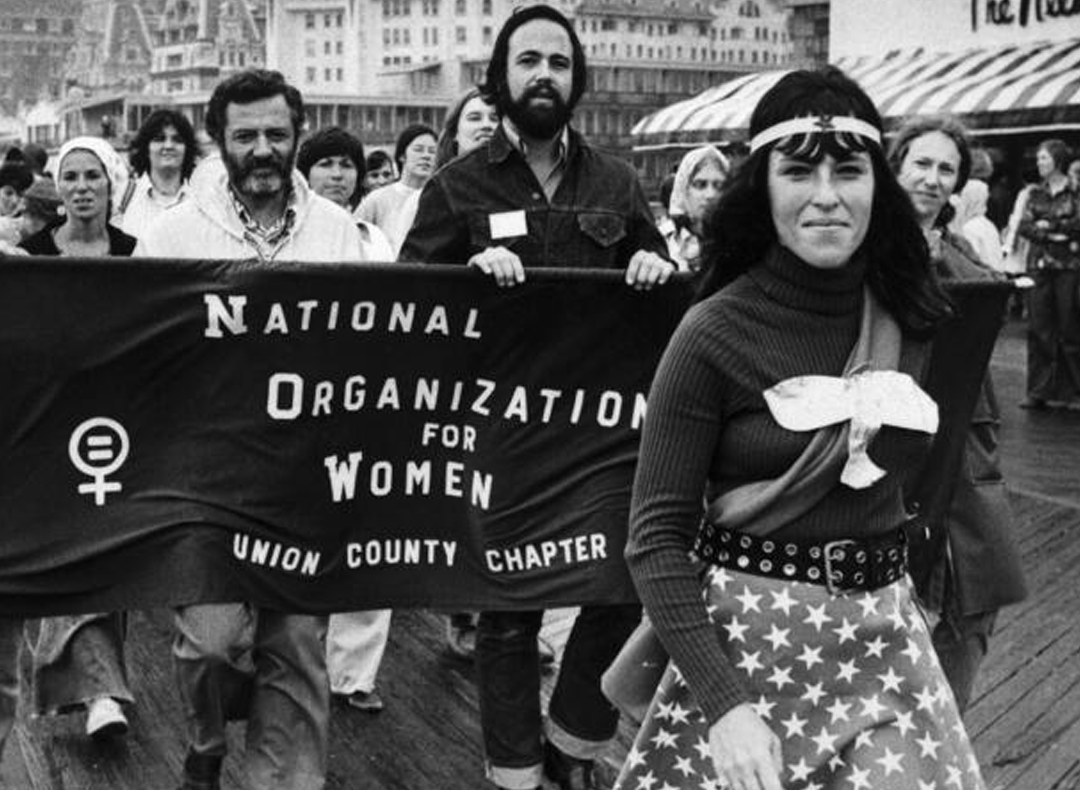
The National Organization for Women (NOW) is founded by Betty Goldstein Friedan with the aim to bring women into full participation in the mainstream of American society. NOW is the largest and most comprehensive feminist advocacy group in the US.
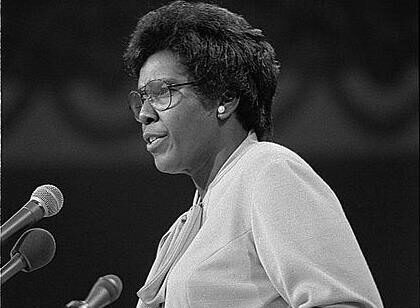
Barbara Jordan is elected in 1966 as the first African-American to serve in the Texas Senate. A decade later, in 1976, she became the first African-American woman keynote speaker at a Democratic National Convention. Despite being diagnosed with multiple sclerosis, Jordan lived a life of many firsts. After her death in 1996, she was also the first African-American to be buried in the Texas State Cemetery. An avid advocate of civil and women’s rights, Jordan was named to the National Women’s Hall of Fame and awarded the Presidential Medal of Freedom.
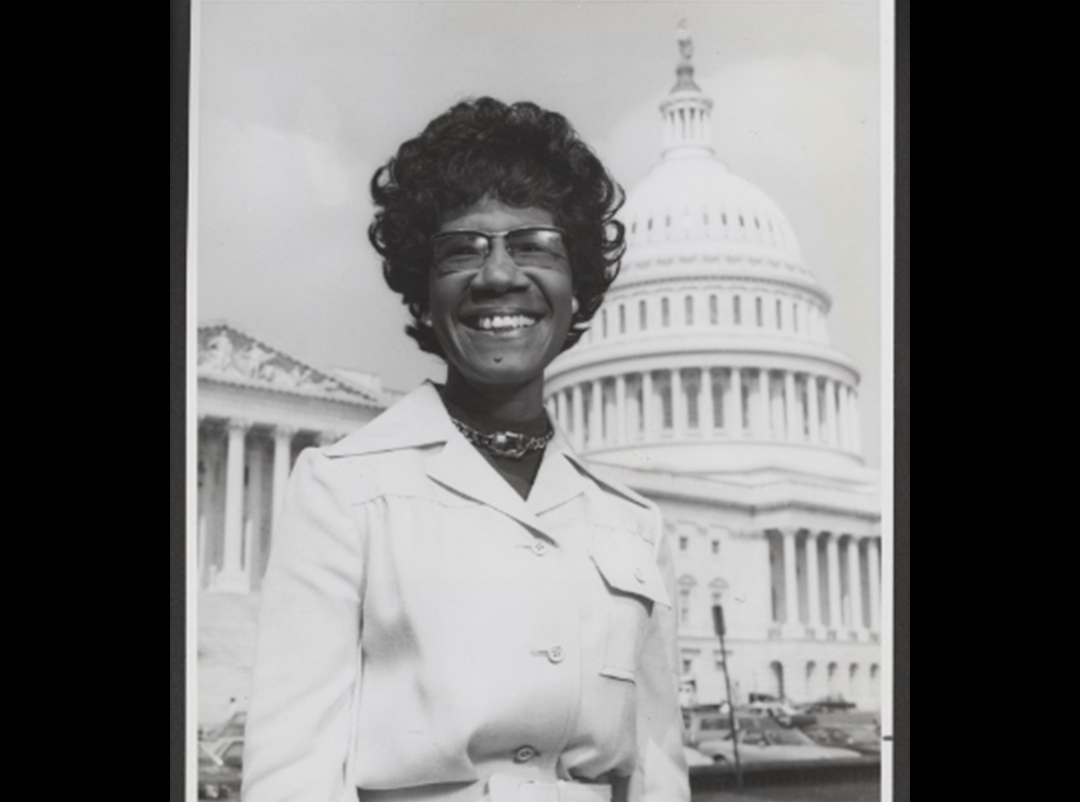
Shirley Chisholm becomes the first African American congresswoman. She would go on to serve seven terms in Congress, during which she was a strong champion of minority education and employment opportunities, and a vocal opponent of the draft. Later, she was one of the founding members of the Congressional Black Caucus.
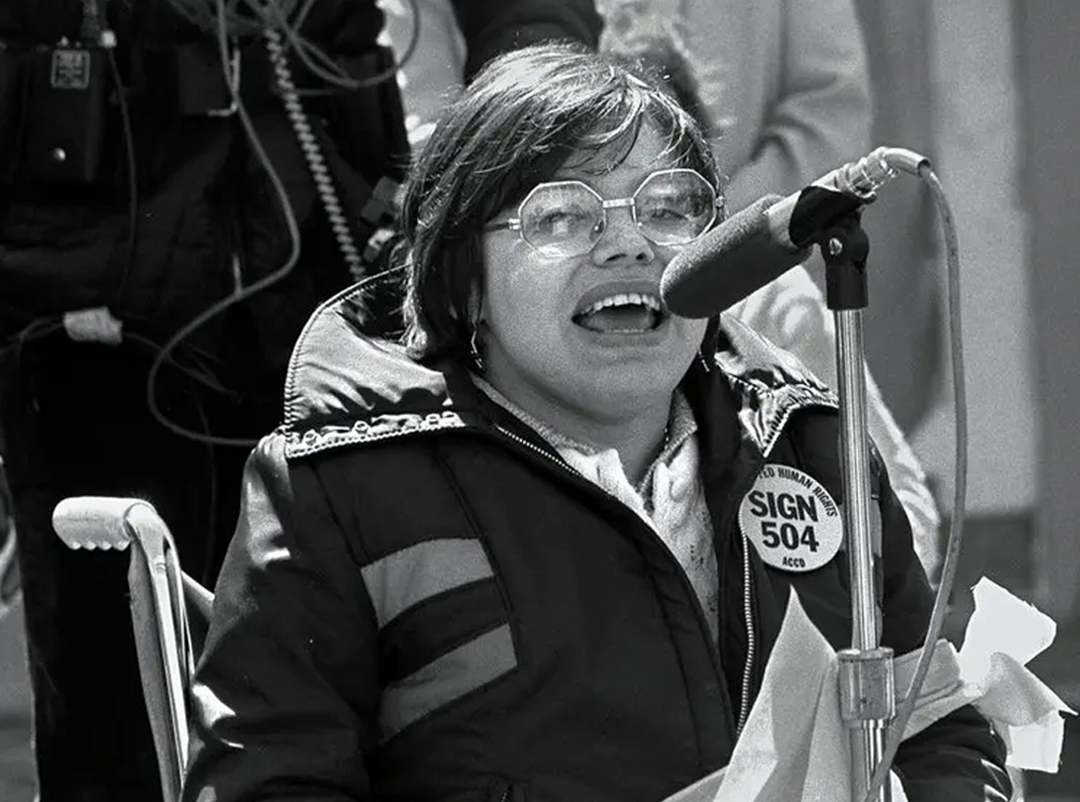
Judy Heumann files a suit in Federal Court to become New York’s first teacher in a wheelchair after she is denied a teaching license by the Department of Education on accounts of her disability. This marks the “first such civil rights suit ever filed in a Federal court.” Heumann moved on to become an internationally recognized civil rights advocate for people with disabilities.
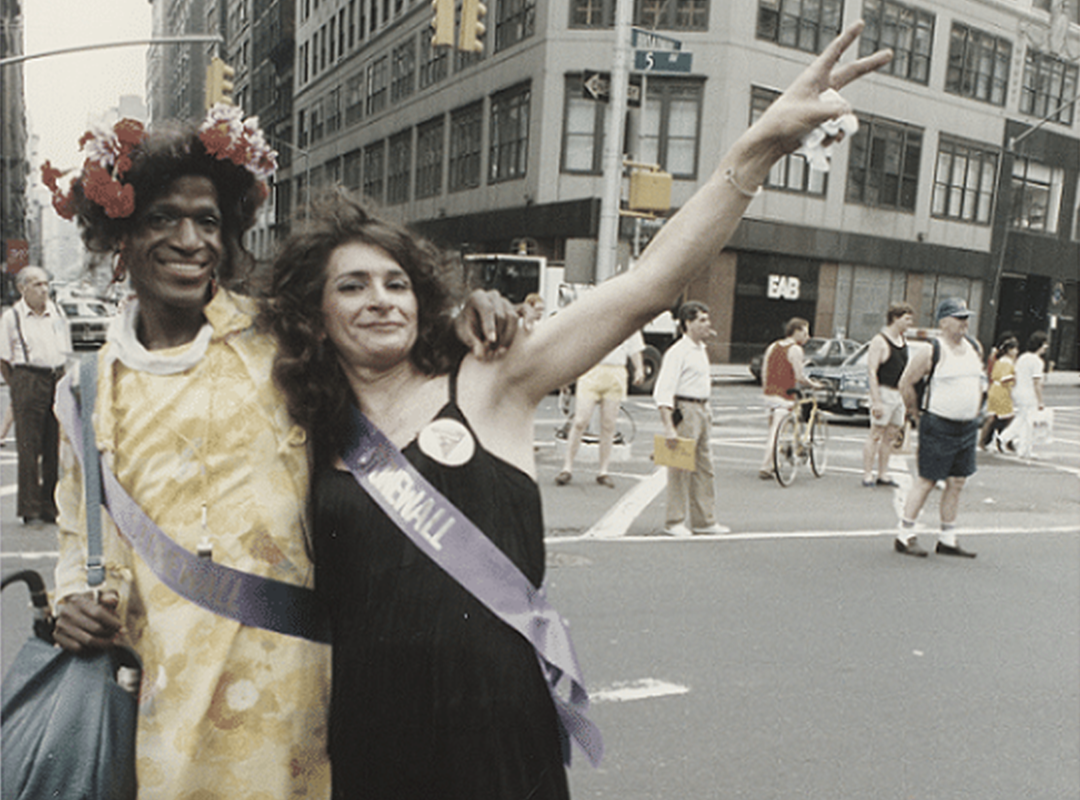
Marsha P. Johnson and Sylvia Rivera establish the Street Transvestite Action Revolutionaries (S.T.A.R.) - the first youth shelter in the United States aimed at helping members of the LGBTQ+ community who are experiencing homelessness. Central to New York’s Gay Liberation Movement, these women were leaders in the fight for social justice and equality.

As the first women's rights Title VII case in the Supreme Court. The Court rules that it is a violation of the Civil Rights Act of 1964 for an employer to refuse to hire women with young children while hiring men who are similarly situated.
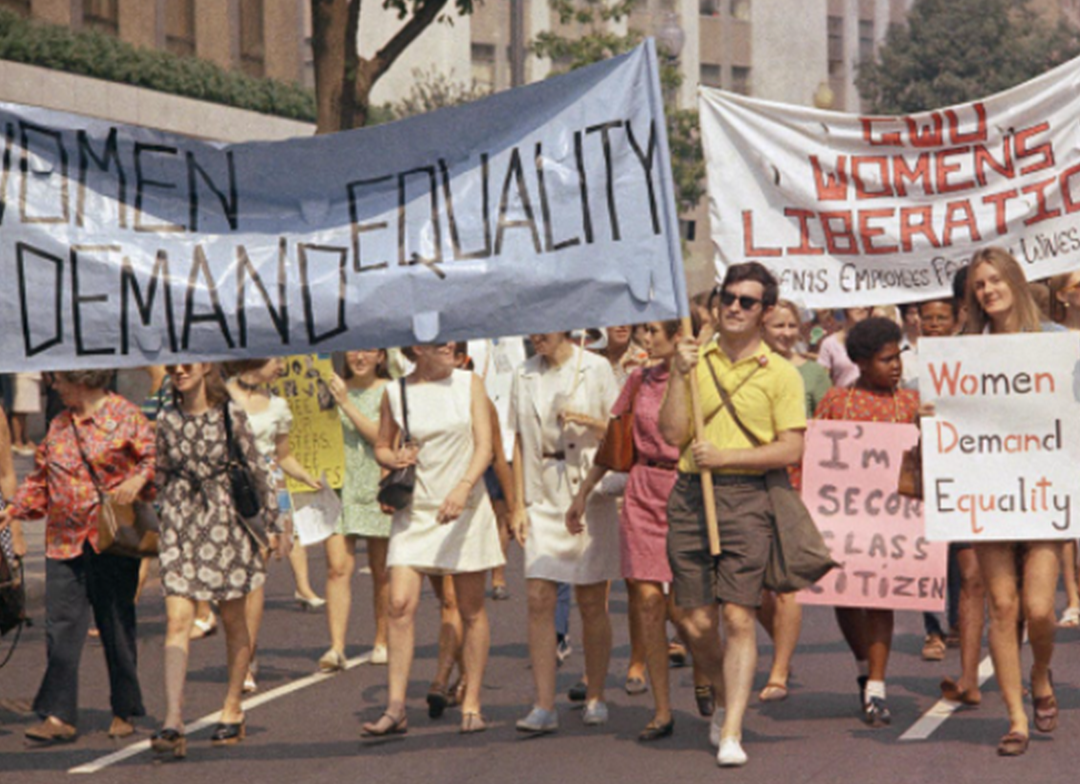
Reed v. Reed The Supreme Court rules that an Idaho law which requires the administrator of an estate to be a man over a woman, when both are equally qualified, is unconstitutional under the Equal Protection Clause of 14th Amendment.

President Richard Nixon signs Title IX of the Education Amendments into law, which states “No person in the United States shall, on the basis of sex, be excluded from participation in, be denied the benefits of, or be subjected to discrimination under any education program or activity receiving Federal financial assistance.”
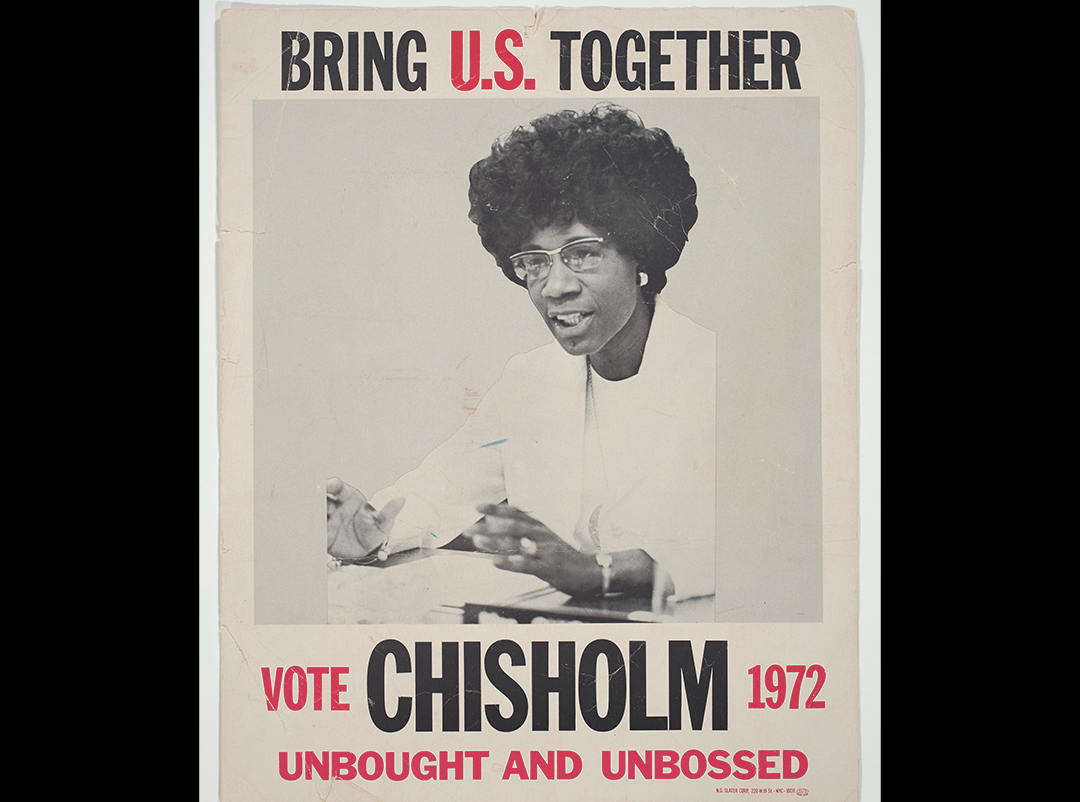
Shirley Chisholm becomes the first Black woman to make a bid to be president by running for the Democratic nomination.
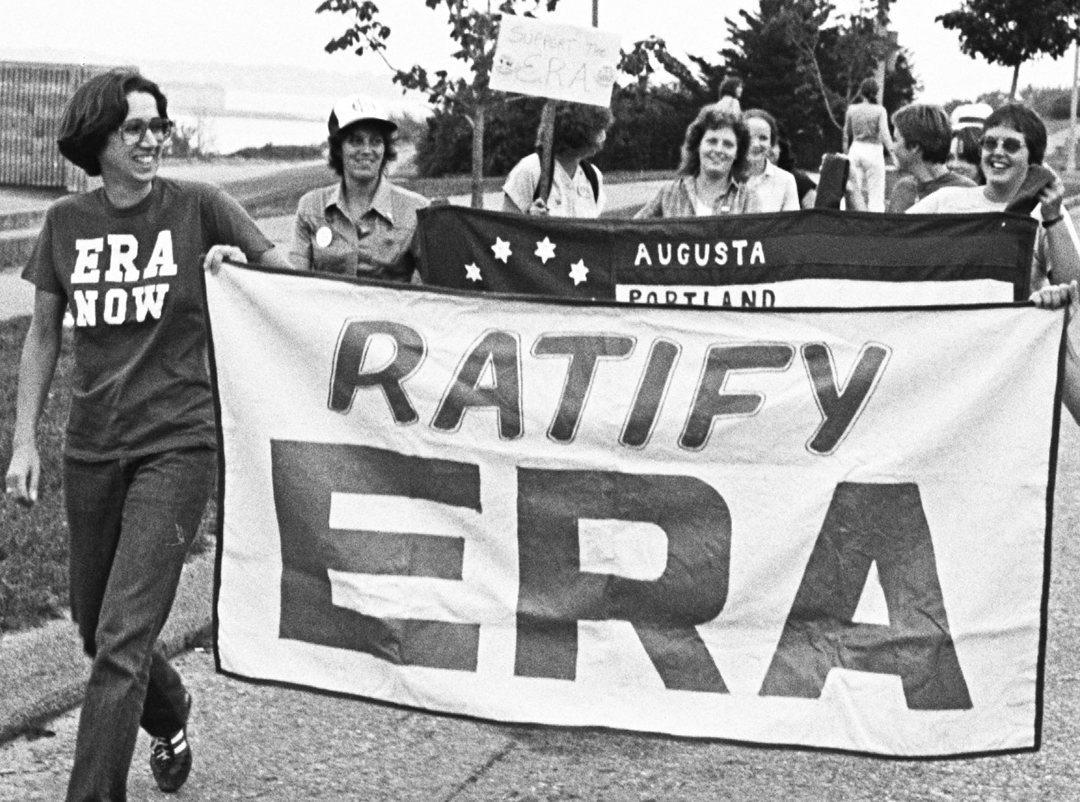
Congress passes the Equal Rights Amendment, which prohibits discrimination on the basis of sex, on March 22, 1972, and sends the ERA to all 50 states for ratification.
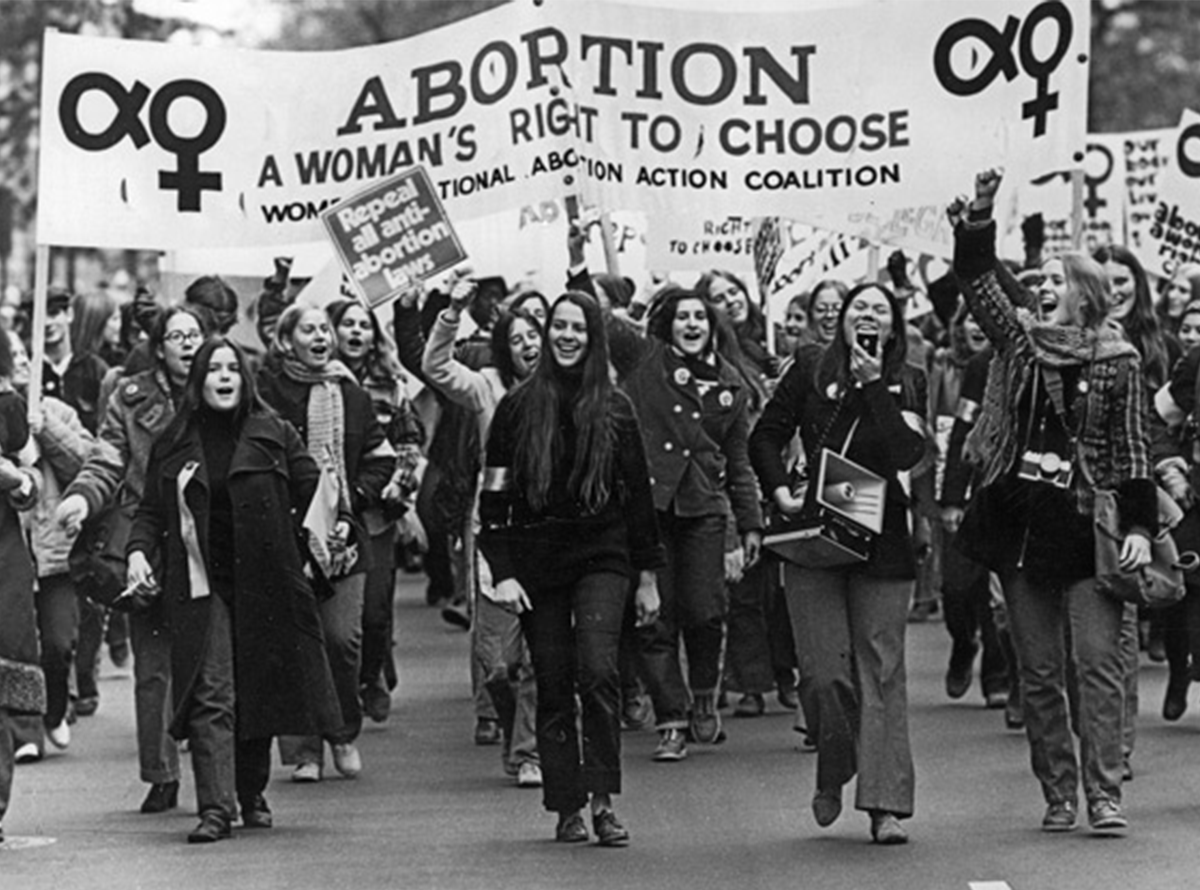
Roe v. Wade: The Supreme Court rules that the constitutional right to privacy protects a woman's decision to choose an abortion. States cannot interfere without a compelling interest, and the life of a fetus can only be asserted as a compelling interest when it becomes viable, and even then, a woman must have access to abortion if it is necessary to preserve her life or health.
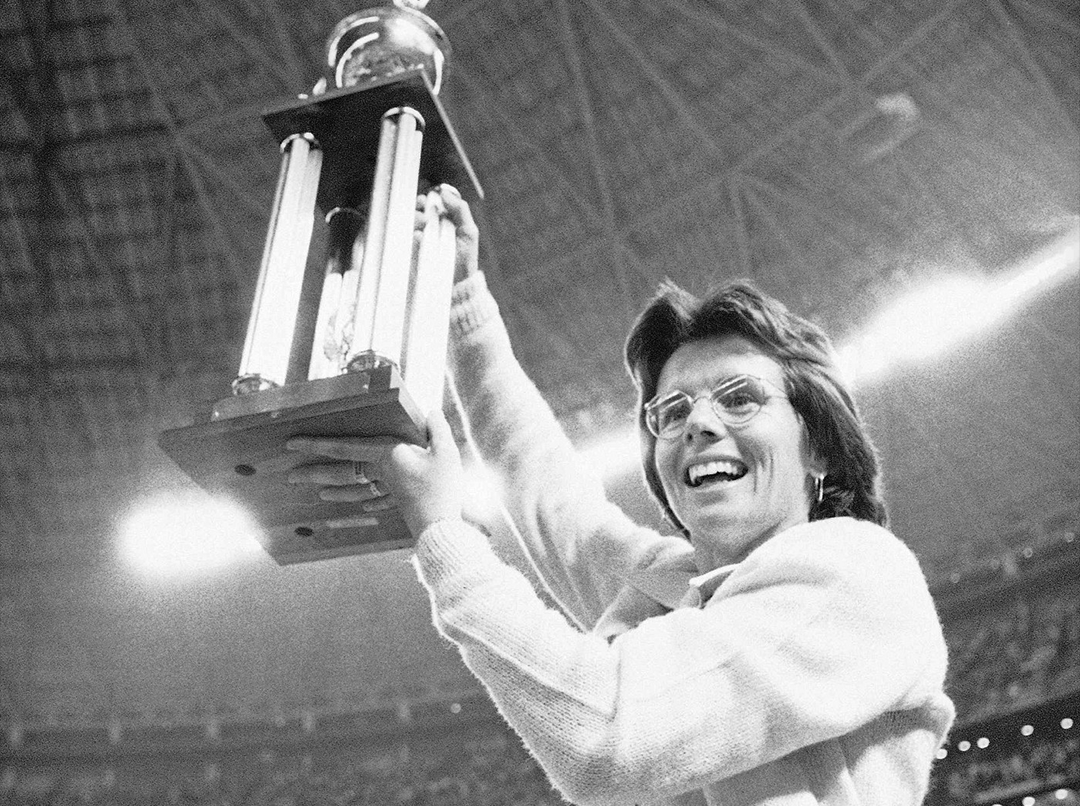
Billie Jean King, an American tennis champion, defeats tennis champion Bobby Riggs, in a “Battle of the Sexes” match after Riggs challenged her, vowing that a female player would not be able to beat him. 50 million people in 37 countries watched King beat Riggs in three straight sets, shining a spotlight on women’s tennis.

The Supreme Court finds that overly restrictive maternity leave regulations in public schools violate the Due Process Clause of the Fifth Amendment and the Fourteenth Amendment. Prior to this ruling, women were required to take unpaid maternity leave after the first trimester of pregnancy under the presumption that women could no longer work beyond this point.

Congress passes the “Equal Credit Opportunity Act” which prohibits housing and credit discrimination on the basis of sex or marital status.

The Supreme Court invalidates state regulations making pregnant women ineligible for unemployment benefits for 12 weeks before birth and 6 weeks after birth, regardless of their capacity to work.
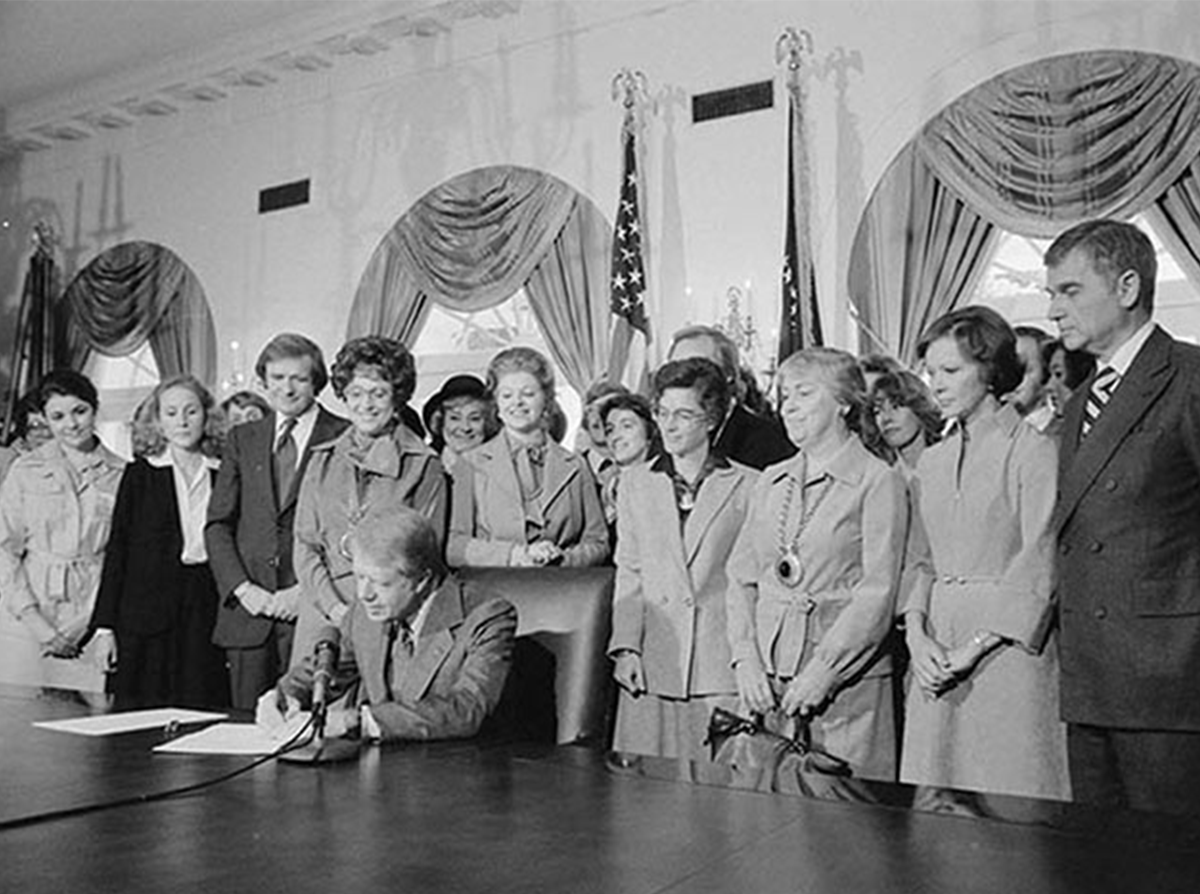
The Pregnancy Discrimination Act is passed by Congress. Until the law was put into effect, women could still legally be dismissed from their jobs for becoming pregnant.

The Supreme Court invalidates a program for unemployment benefits to families with unemployed fathers, but not unemployed mothers, under the presumption that fathers are the primary breadwinners while mothers are homemakers. The Court declares this as unconstitutional.
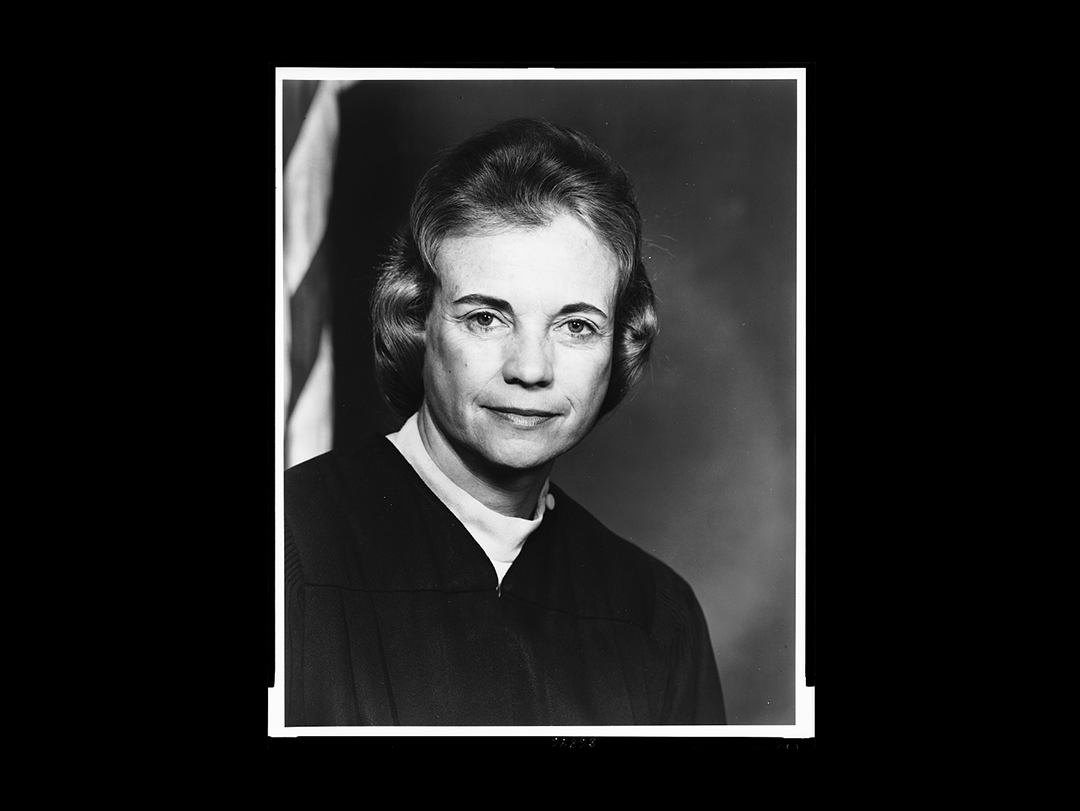
Sandra Day O’Connor is sworn in by President Ronald Reagan as the first woman to serve on the United States Supreme Court. She served for twenty-four years, until 2006.

The Supreme Court rules that excluding women from the draft is constitutional.

The Supreme Court invalidates a law that gives husbands the right to control marital property without their wives’ consent, declaring it a violation of married women’s constitutional rights under the Equal Protection Clause.
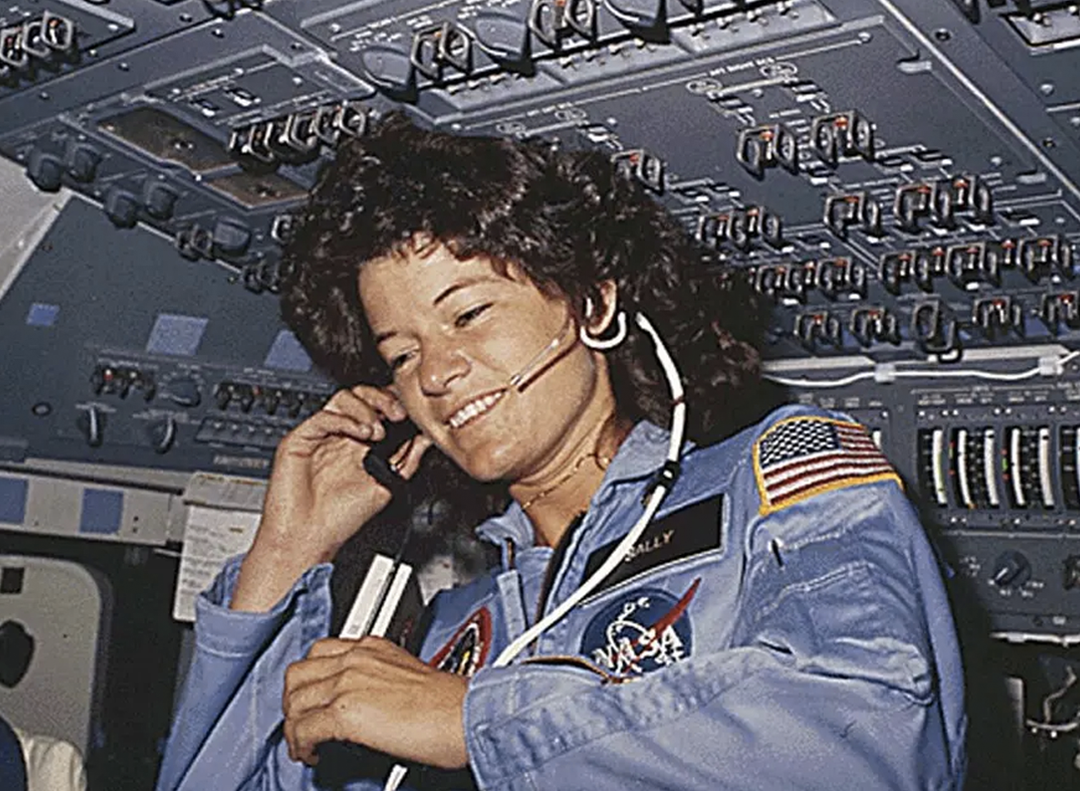
Dr. Sally Ride becomes the first American woman in space, flying on the Challenger. NASA had previously restricted astronaut qualification strictly to men. She is also the first and only acknowledged LGBTQ+ astronaut. However, this was only discovered after her death in 2012. In 2013, Ride posthumously, received the Presidential Medal of Freedom from President Barack Obama.

The Supreme Court decides that discrimination based on a woman’s pregnancy status is sex-based discrimination. In order to be in accordance with Title VII, employer health plans must cover pregnancy-related services equally for female employees and female spouses of employees.
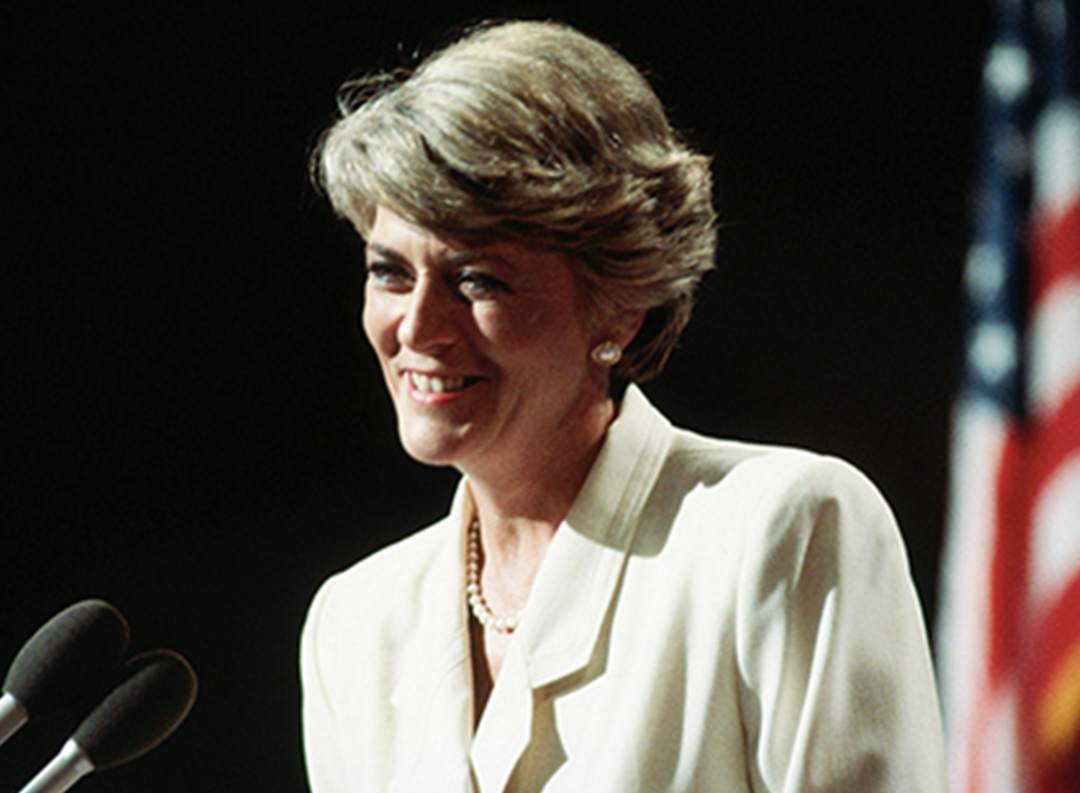
Geraldine Ferraro was selected by Democratic presidential nominee Walter Mondale as his running mate, making her the first woman vice president nominee by a major party.

The Supreme Court finds that sexual harassment that results in a hostile work environment is a form of sex discrimination prohibited by Title VII of the Civil Rights Act, which bans sex discrimination by employers.
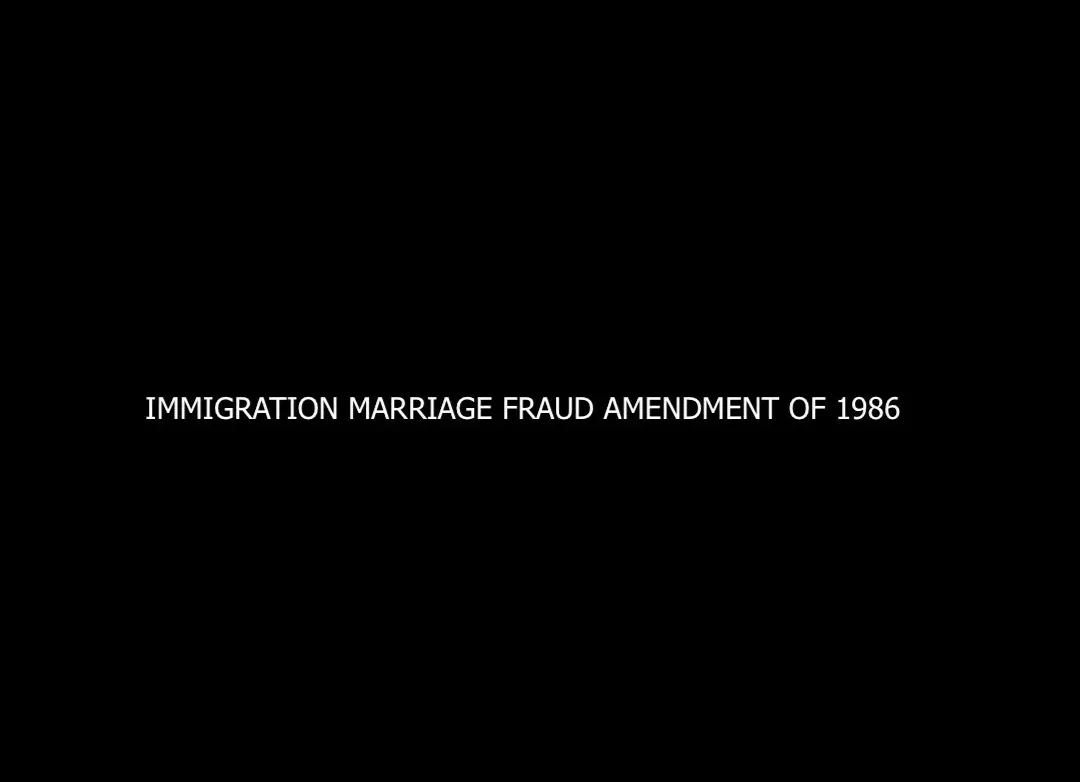
The Immigration Marriage Fraud Amendment of 1986 mandates that a U.S. citizen and their non-citizen spouse must maintain a valid two-year marriage, entered in good-faith without intentions of fraud, otherwise the Immigration and Naturalization Services (INS) can terminate the conditional resident status granted to the non-citizen spouse. This is particularly harmful for non-citizen women who experience domestic violence as they are forced to cohabitate with their abuser for fear of reprisal and loss of permanent resident status.

In an effort to amend the downfalls created by the Immigration Marriage Fraud Amendment, the Immigration Act of 1990 establishes a “battered spouse waiver” to allow non-citizen women who are victims of domestic violence to remove the conditionality of their legal status and become permanent legal residents without the aid of their abusive spouse.
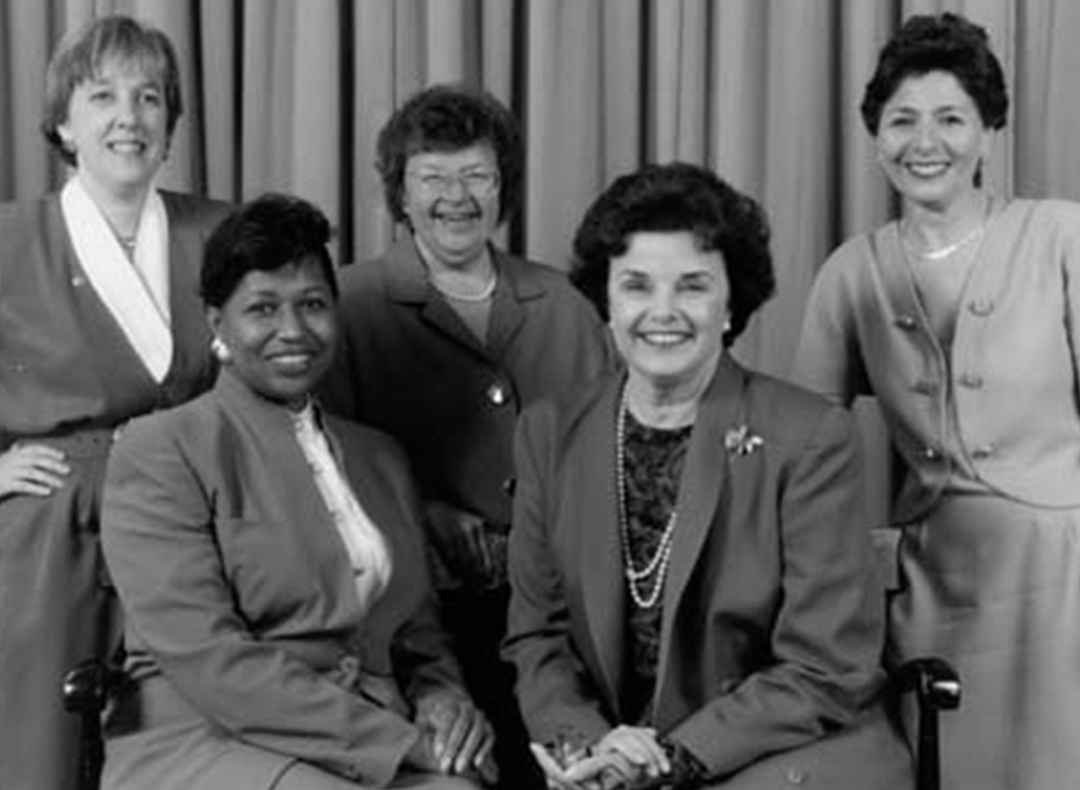
Deemed “Year of the Woman”: four women are elected to the Senate: Barbara Boxer and Dianne Feinstein (CA), Carol Moseley Braun (IL) (also the first Black woman elected to the Senate), Patty Murray (WA); 24 women were elected to the House of Representatives.
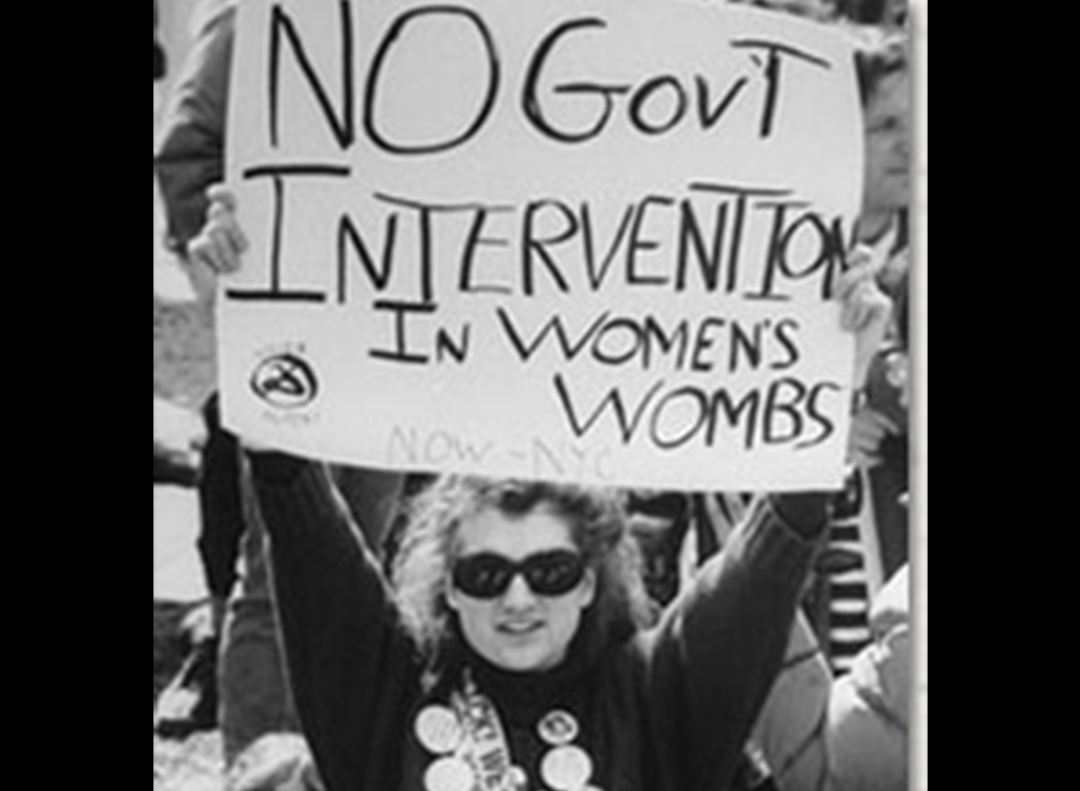
In Planned Parenthood of Southeastern Pennsylvania v. Casey, the Supreme Court upholds Roe v. Wade, but allows states to impose restrictions such as waiting periods and parental consent for minors seeking abortions, effectively reducing the protections in place to ensure women have access to abortion.

Anita Hill testifies against Clarence Thomas during his Senate Confirmation Hearing while he was a U.S. Supreme Court nominee, on accusations of sexual harassment.
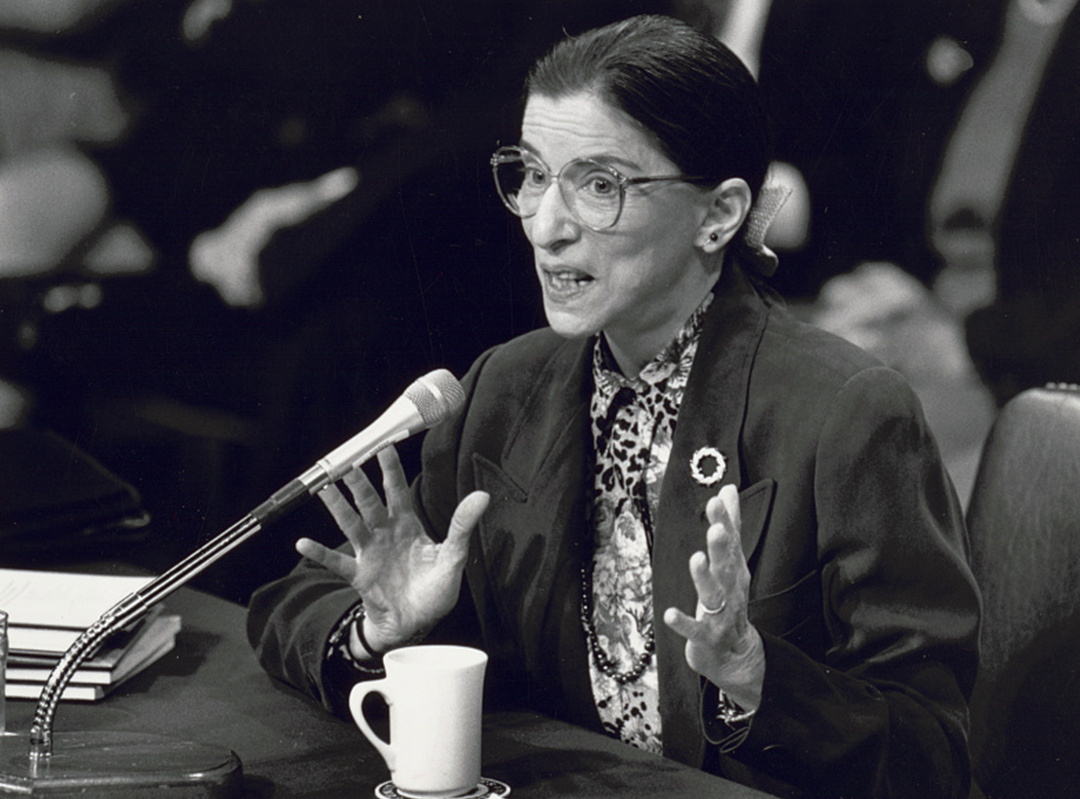
Ruth Bader Ginsburg is sworn in as a Justice of the Supreme Court. She spent her 25 years on the federal bench as a champion for women’s interests, gender equality and civil rights.
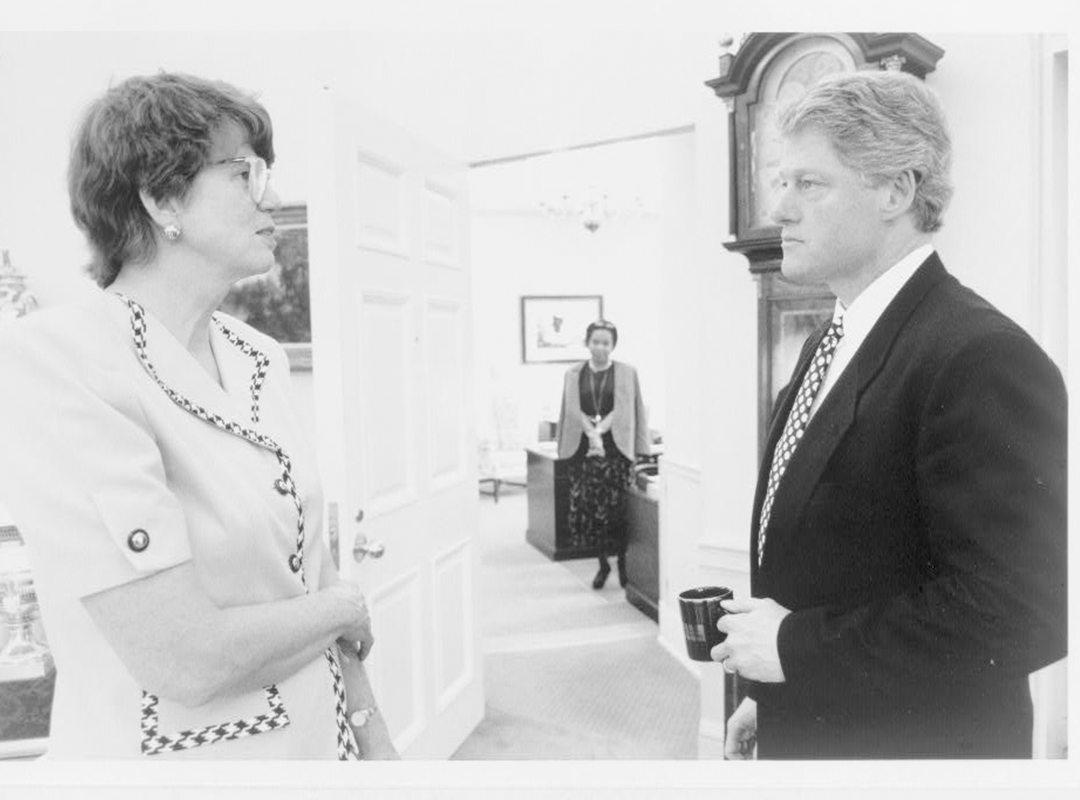
Janet Reno is sworn in as the first female attorney general of the United States by President Bill Clinton.
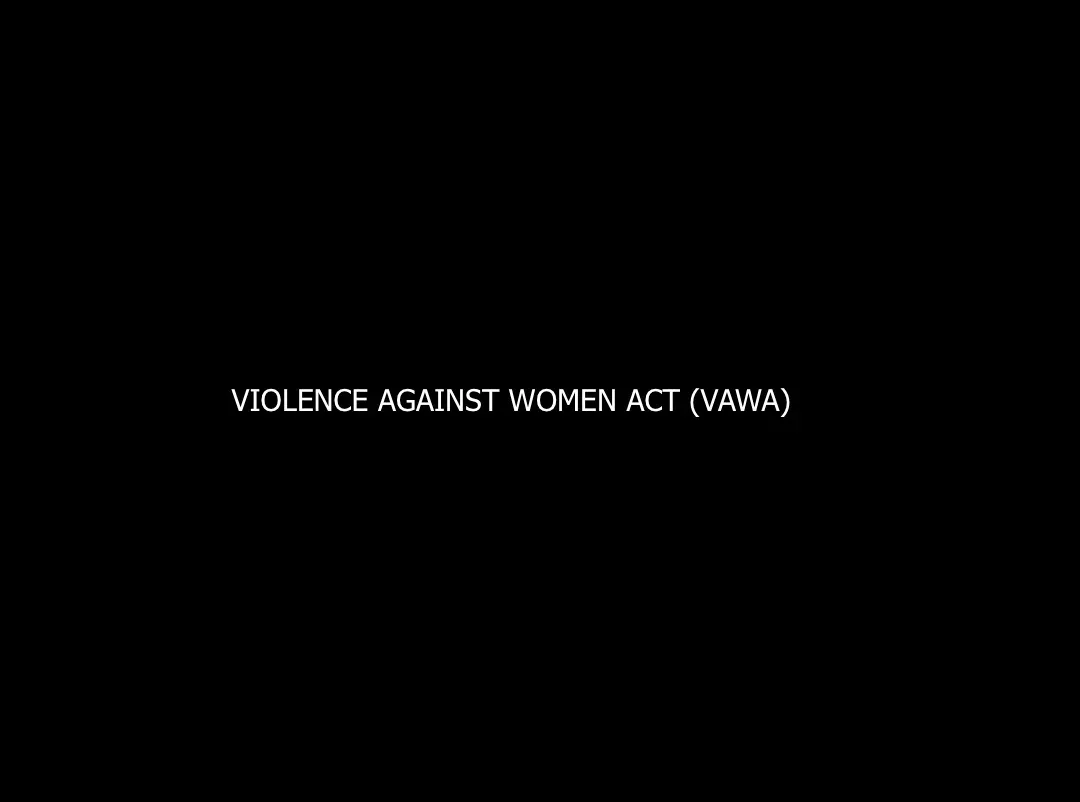
President Bill Clinton signs the Violence Against Women Act (VAWA), providing funding for programs that help victims of domestic violence, rape, sexual assault, stalking, and other gender-related violence. Before the VAWA was signed, domestic abusers could cross state lines to avoid prosecution. The Act helped to create a profound cultural shift, recognizing the seriousness of gender-based violence and promoting understanding of violence as a source of women’s inequality.
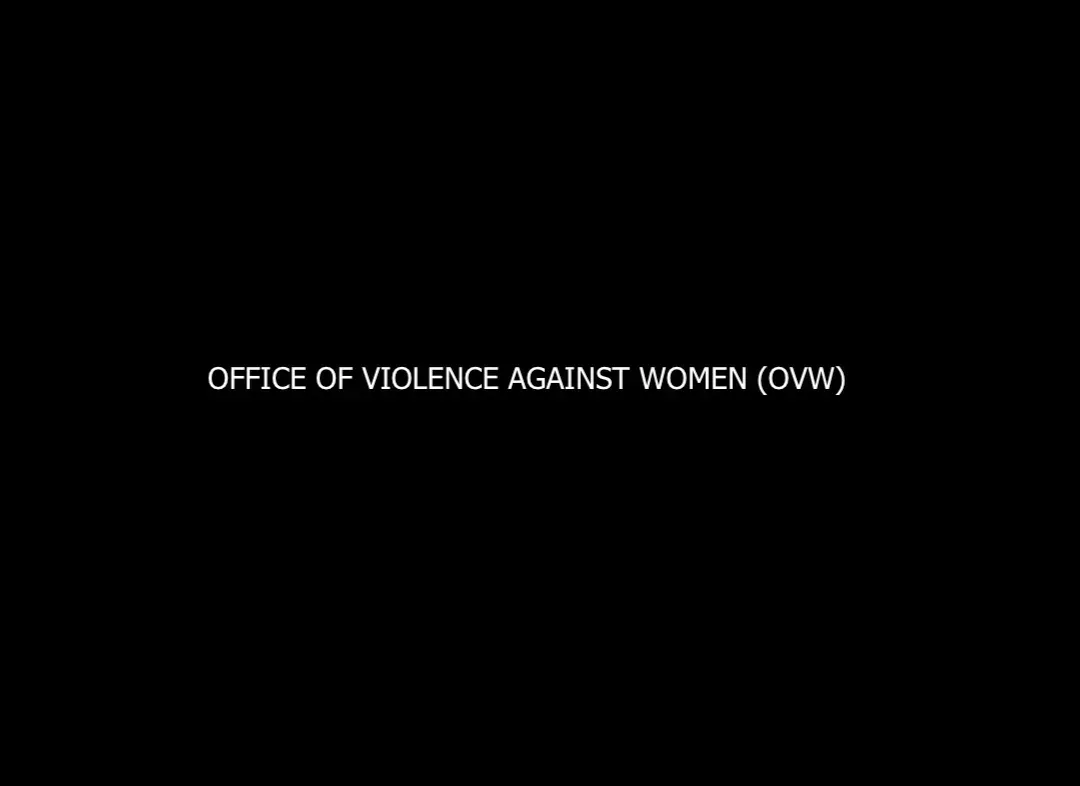
Created as a result of the passage of VAWA, the Office of Violence Against Women (OVW) “develops programs, policies, and practices aimed at ending domestic violence, dating violence, sexual assault and stalking.”

Providing immigration relief, several articles protecting non-citizen women and children who are victims of violence are found in the Illegal Immigration Reform and Immigration Responsibility Act (IIRIRA) of 1996. Under IIRIRA: noncitizen women who are victims of violence are exempt from certain penalties often faced by immigrants; noncitizen women who are victims of violence are granted access to public benefits; and it is recognized that many noncitizen women are undocumented as a direct result of domestic abuse.
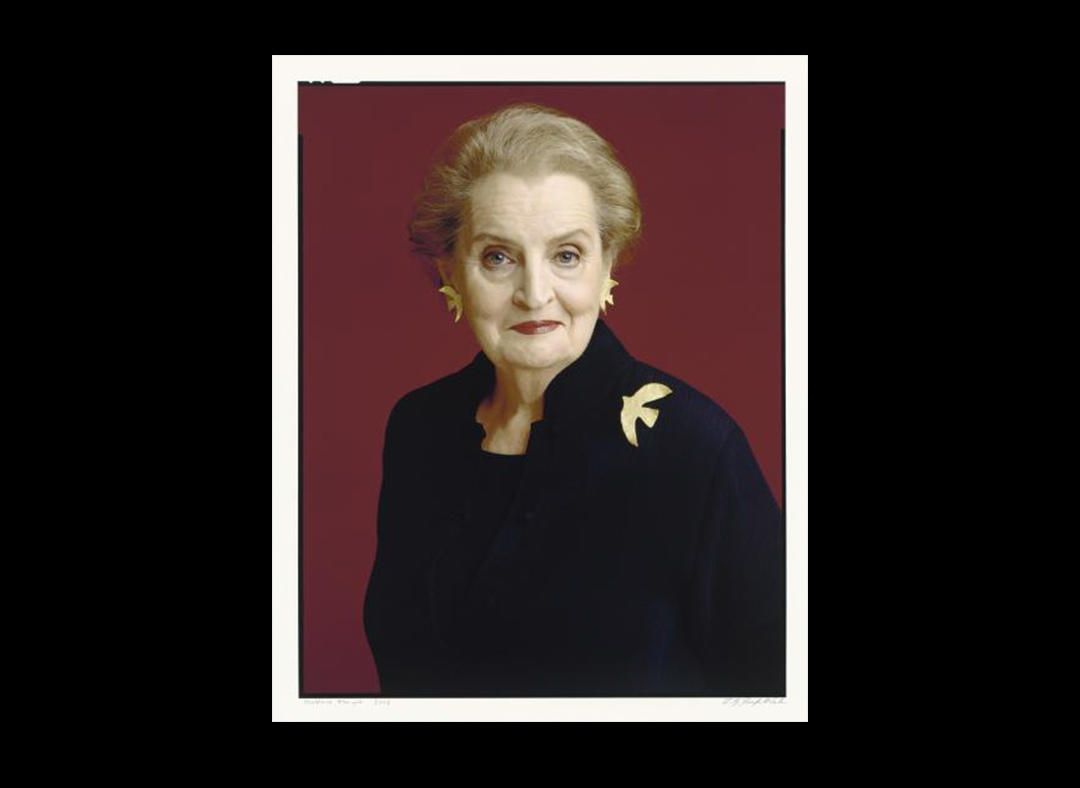
Madeleine Albright is sworn in as the nation’s first female secretary of state.
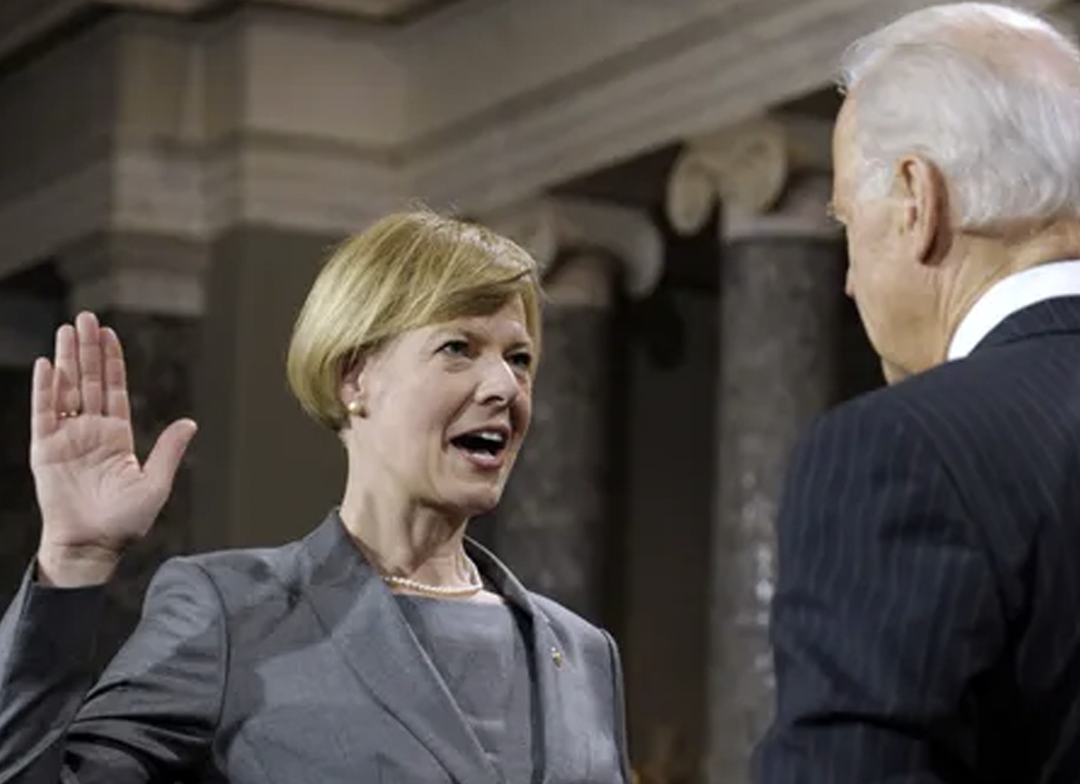
Tammy Baldwin is elected as Wisconsin’s first female member and the nation’s first openly gay person to serve in the House of Representatives. She made history once again, in 2012, when she became the first openly gay politician elected to the Senate and Wisconsin’s first female Senator. Tammy Baldwin is elected as Wisconsin’s first female member and the nation’s first openly gay person to serve in the House of Representatives. She made history once again, in 2012, when she became the first openly gay politician elected to the Senate and Wisconsin’s first female Senator.

Women’s participation in the labor force hits a high of 60%.
